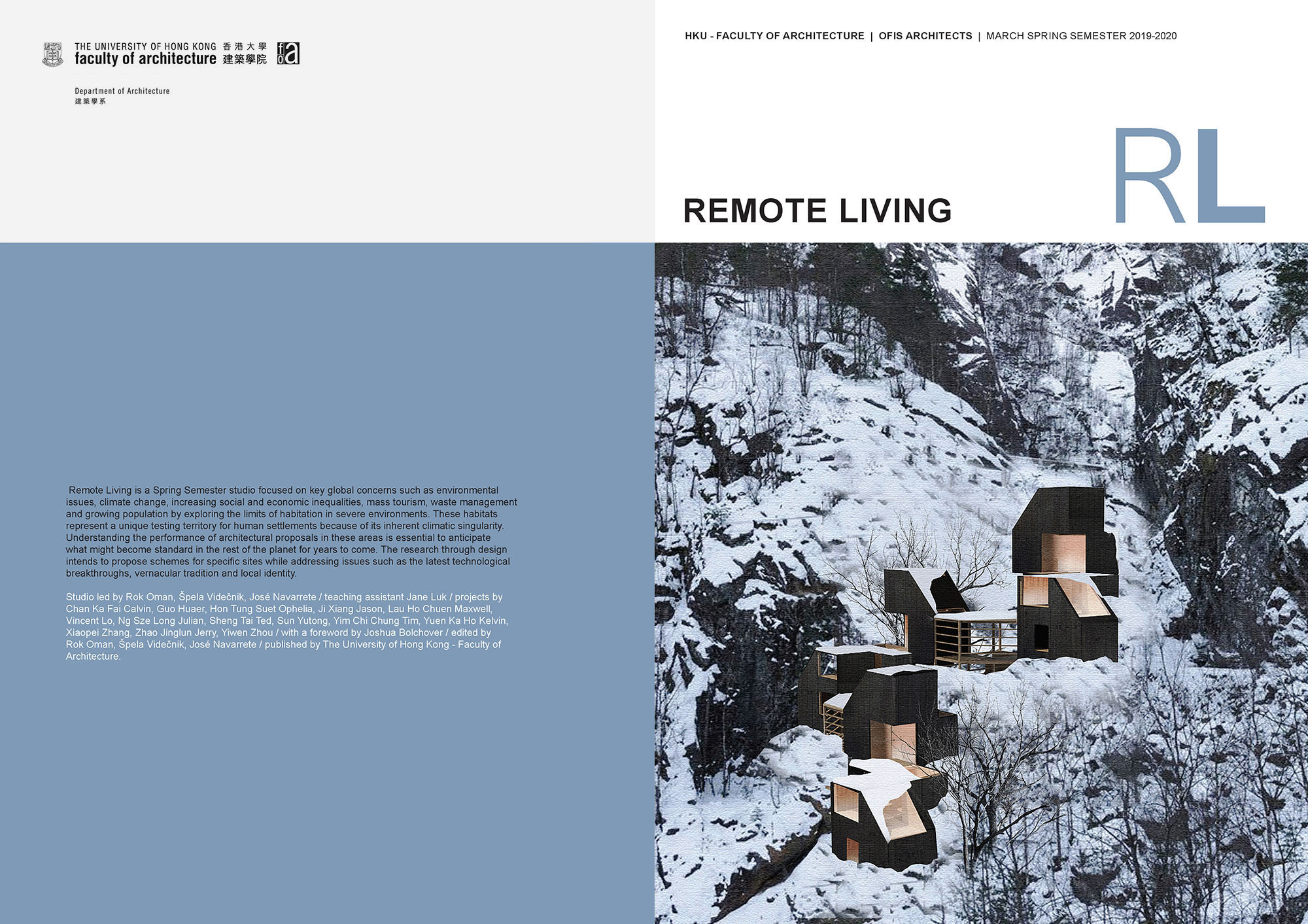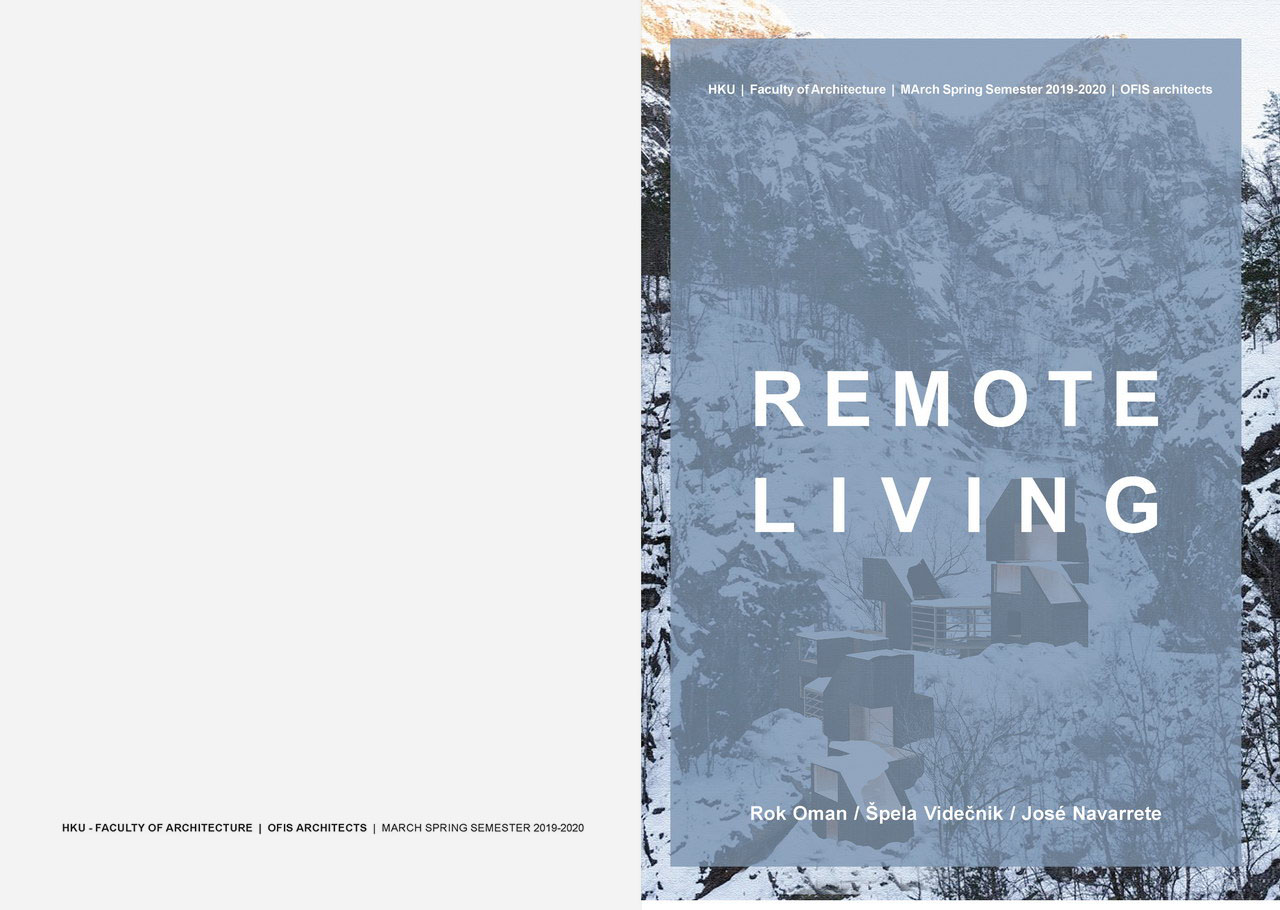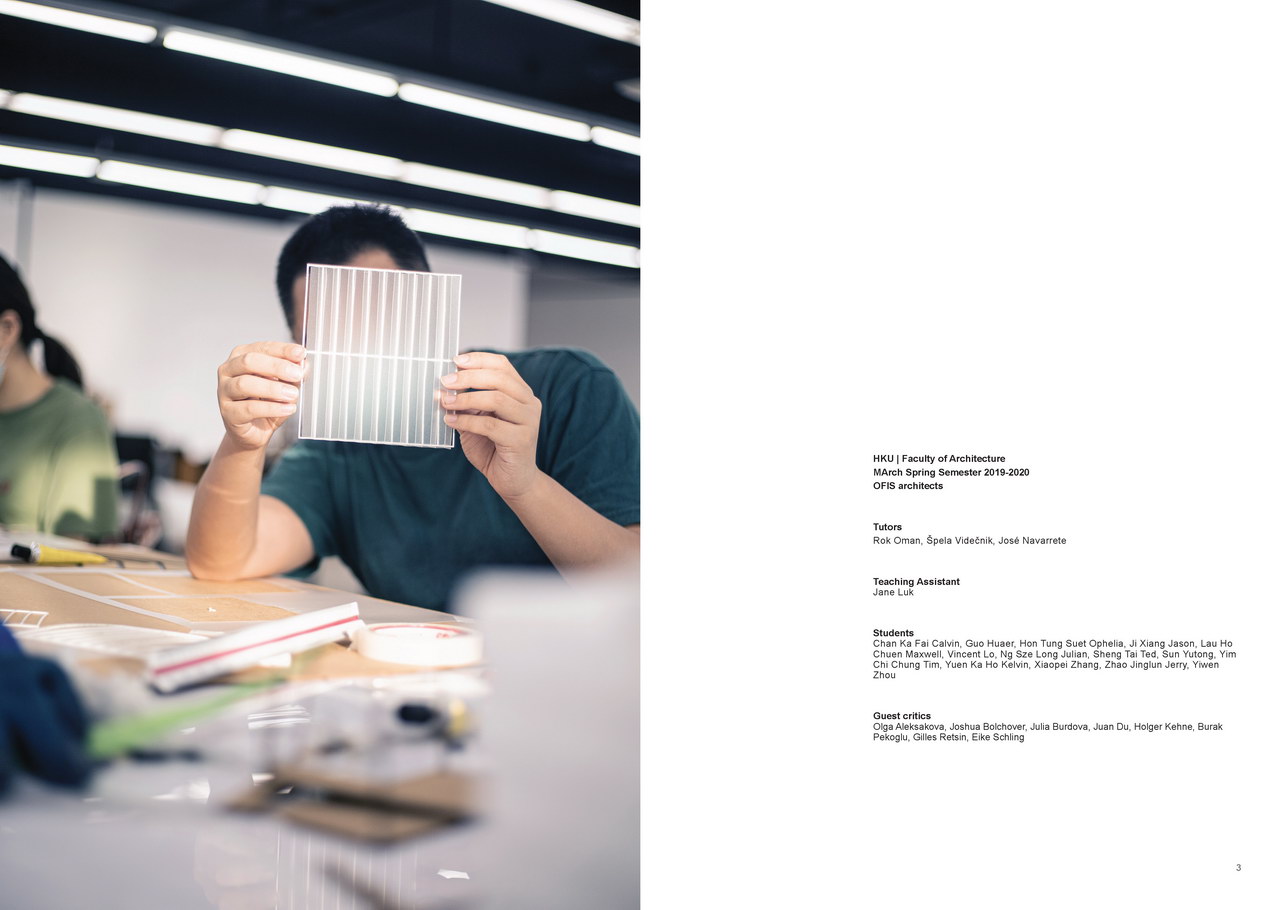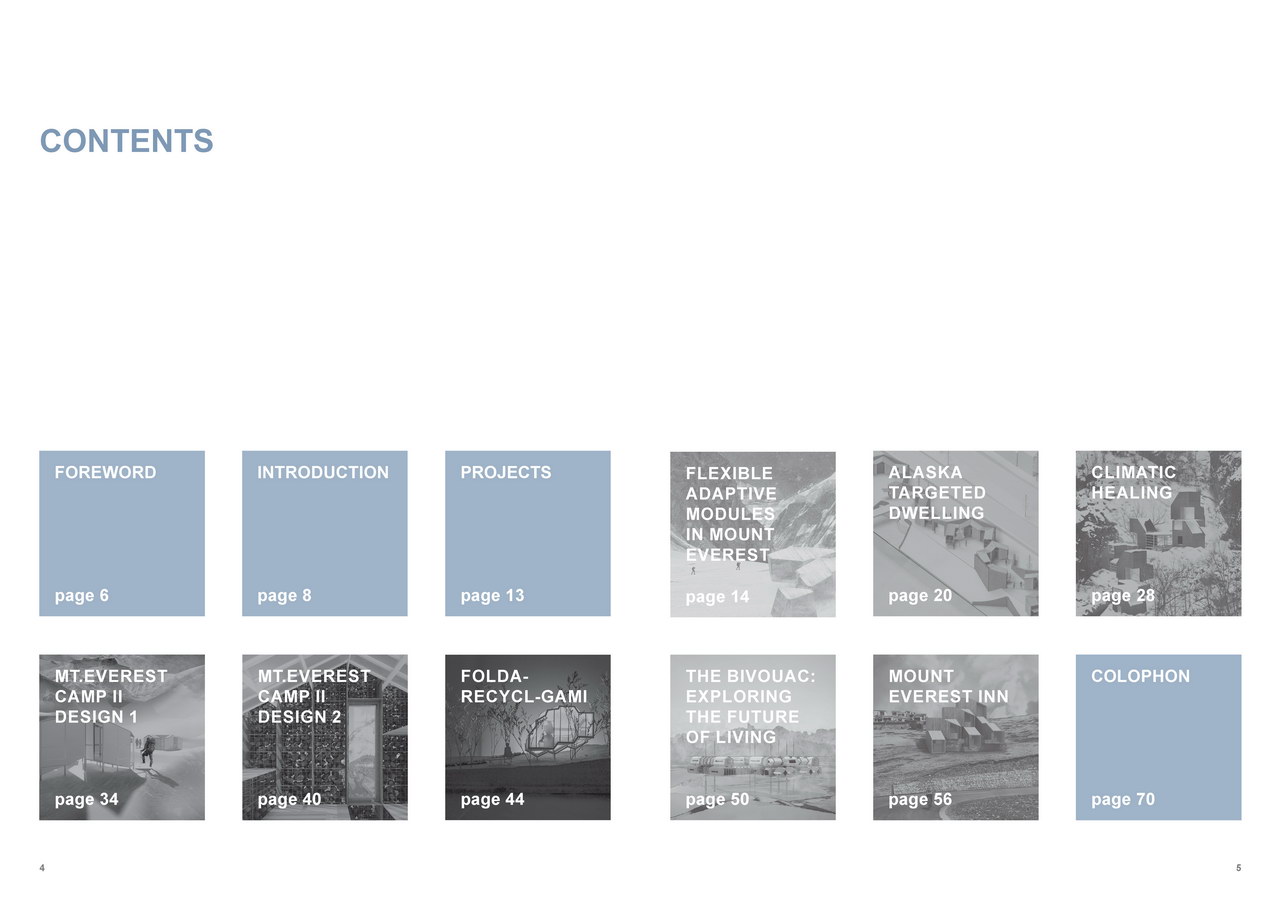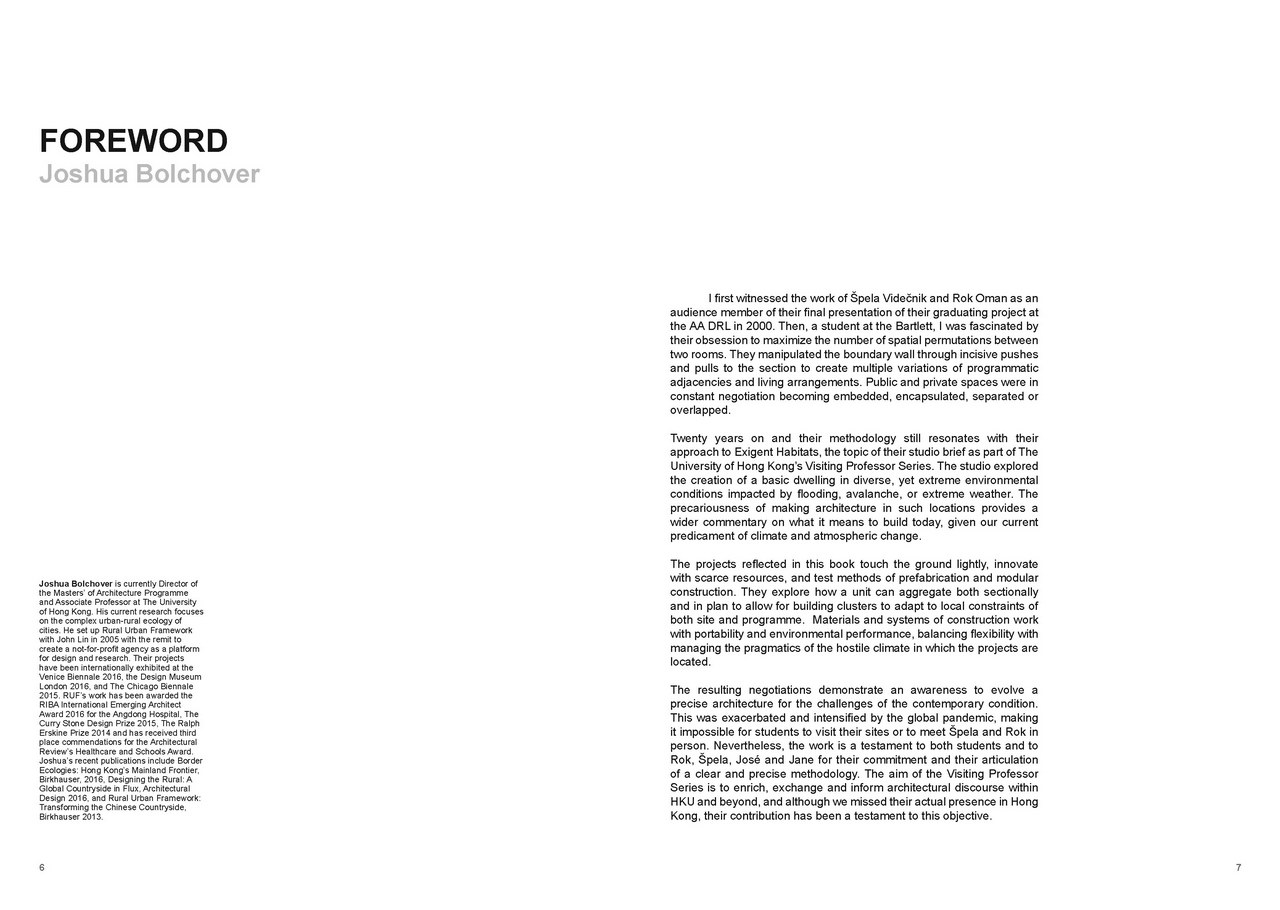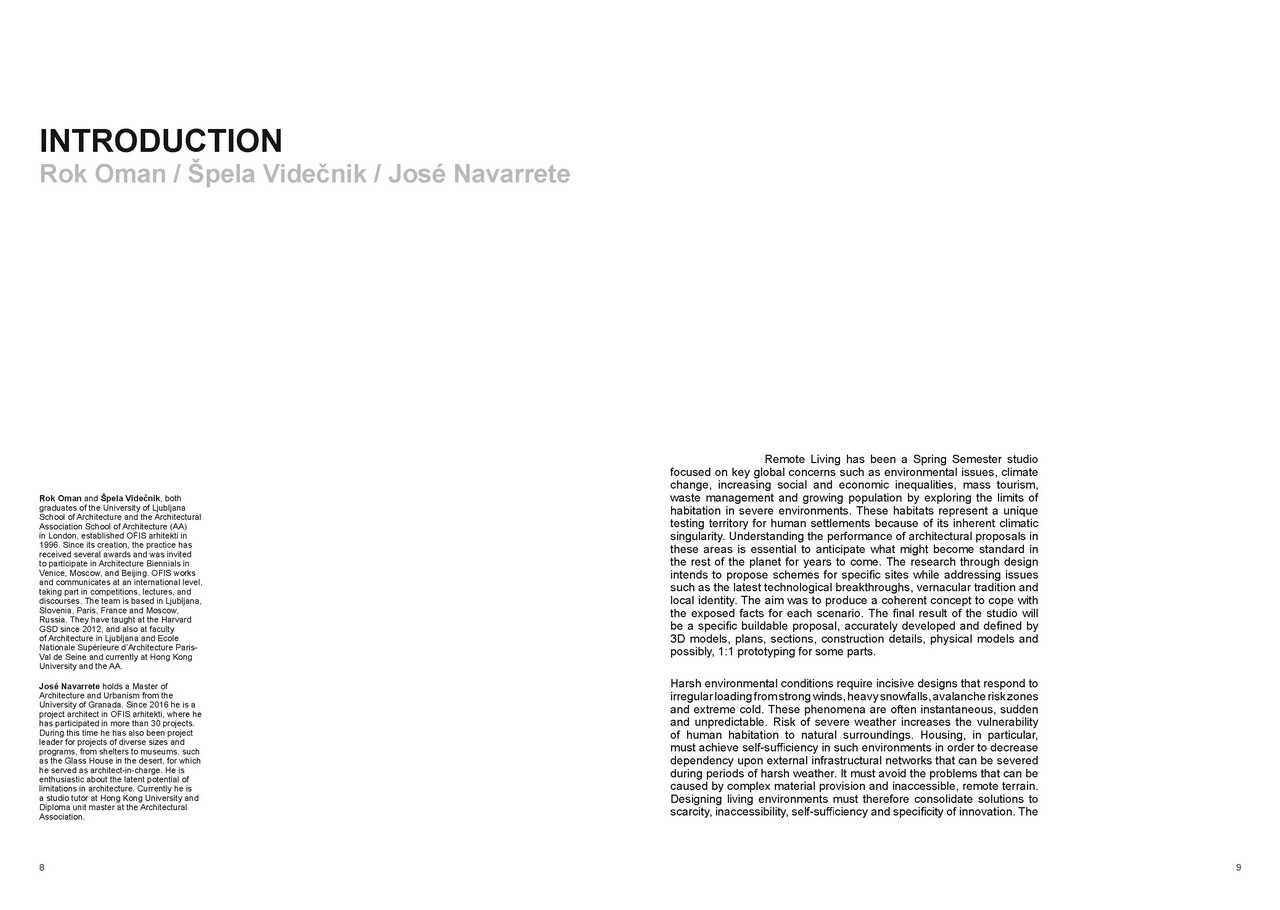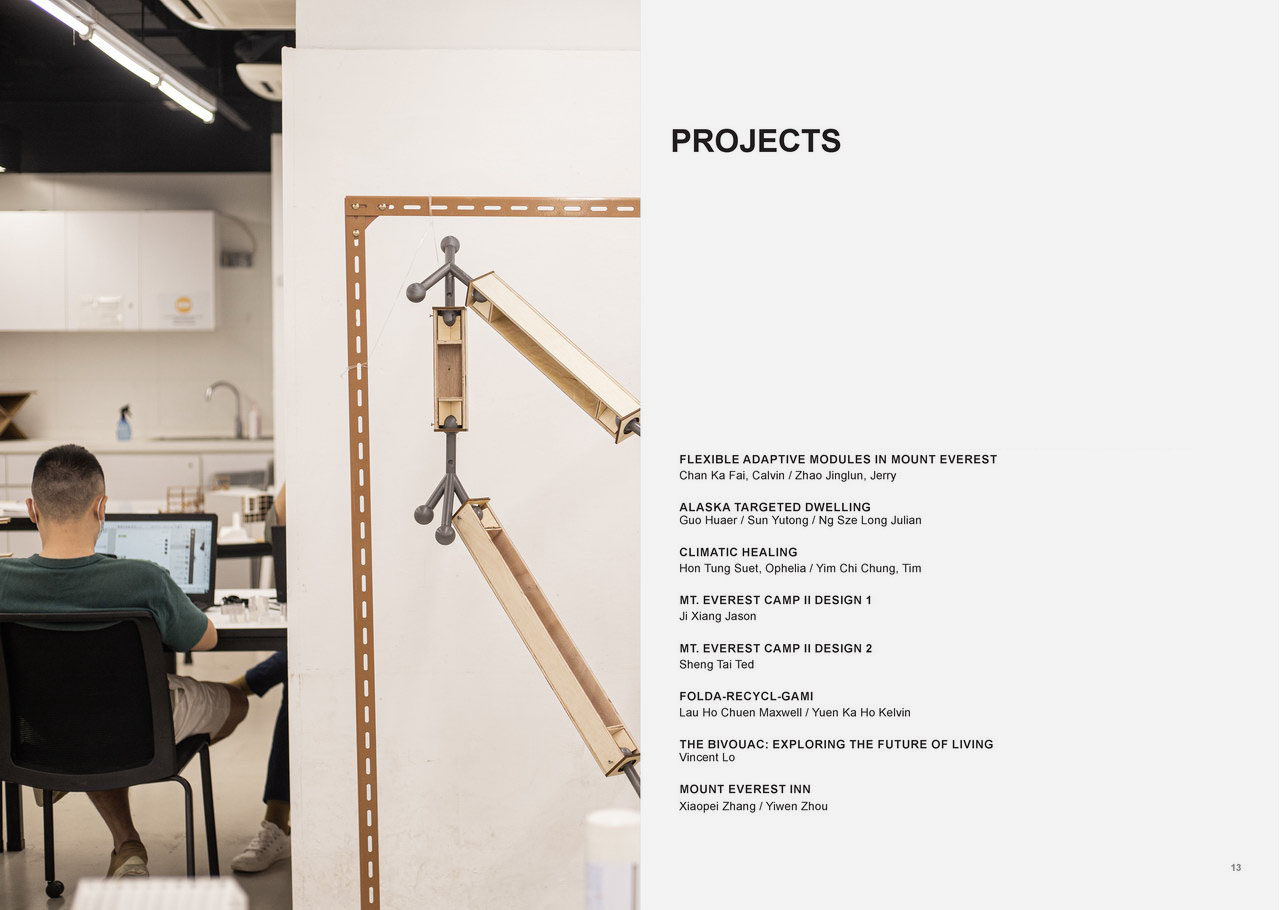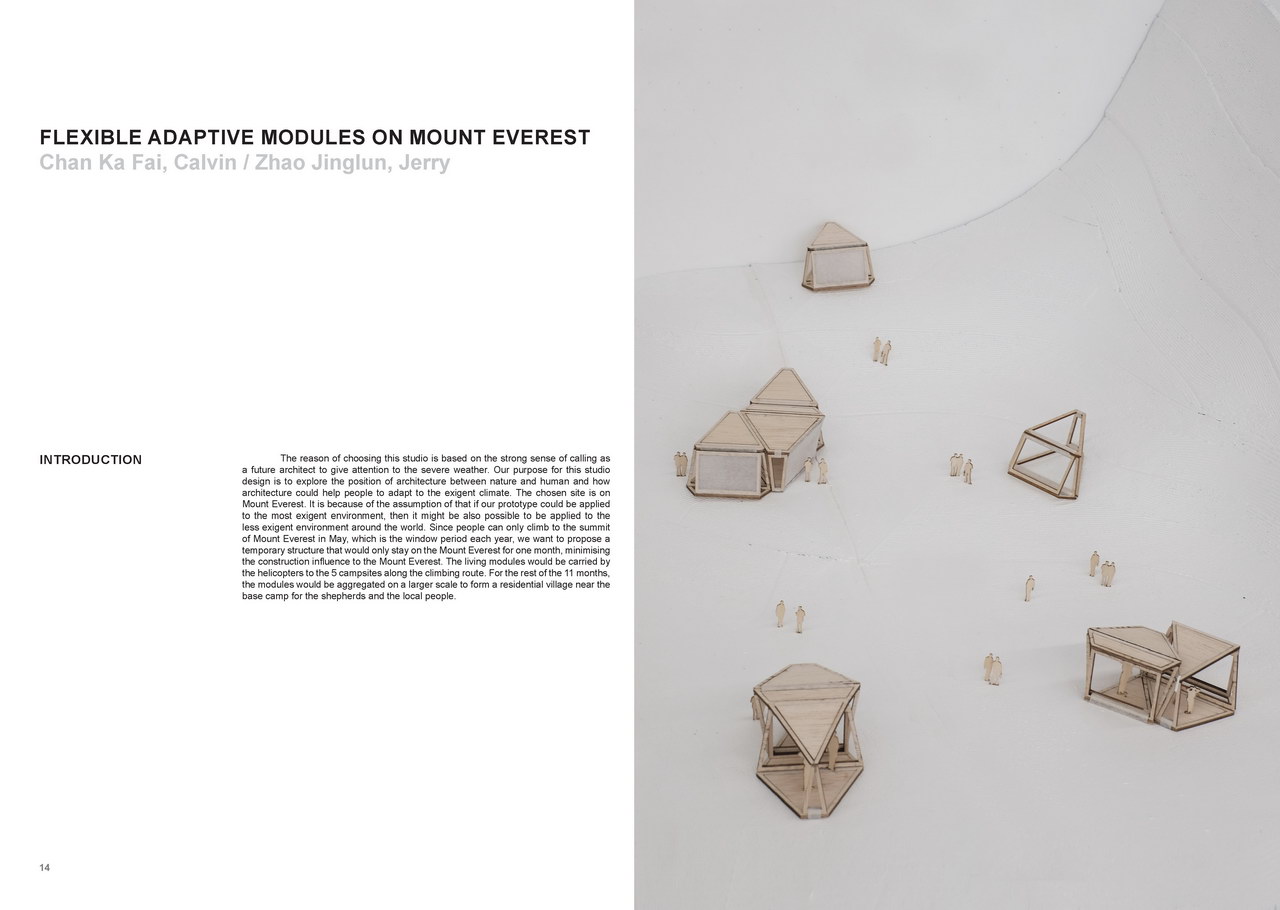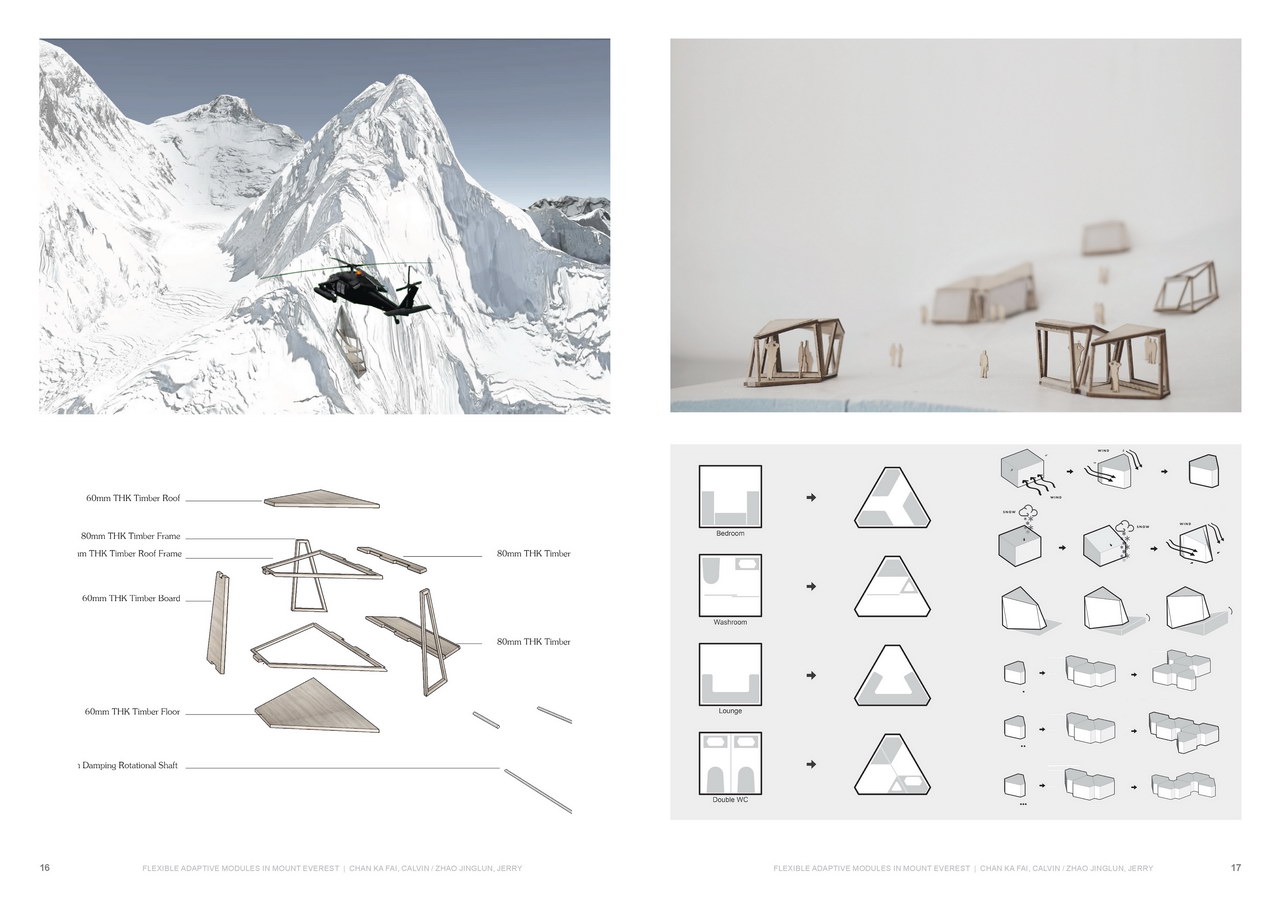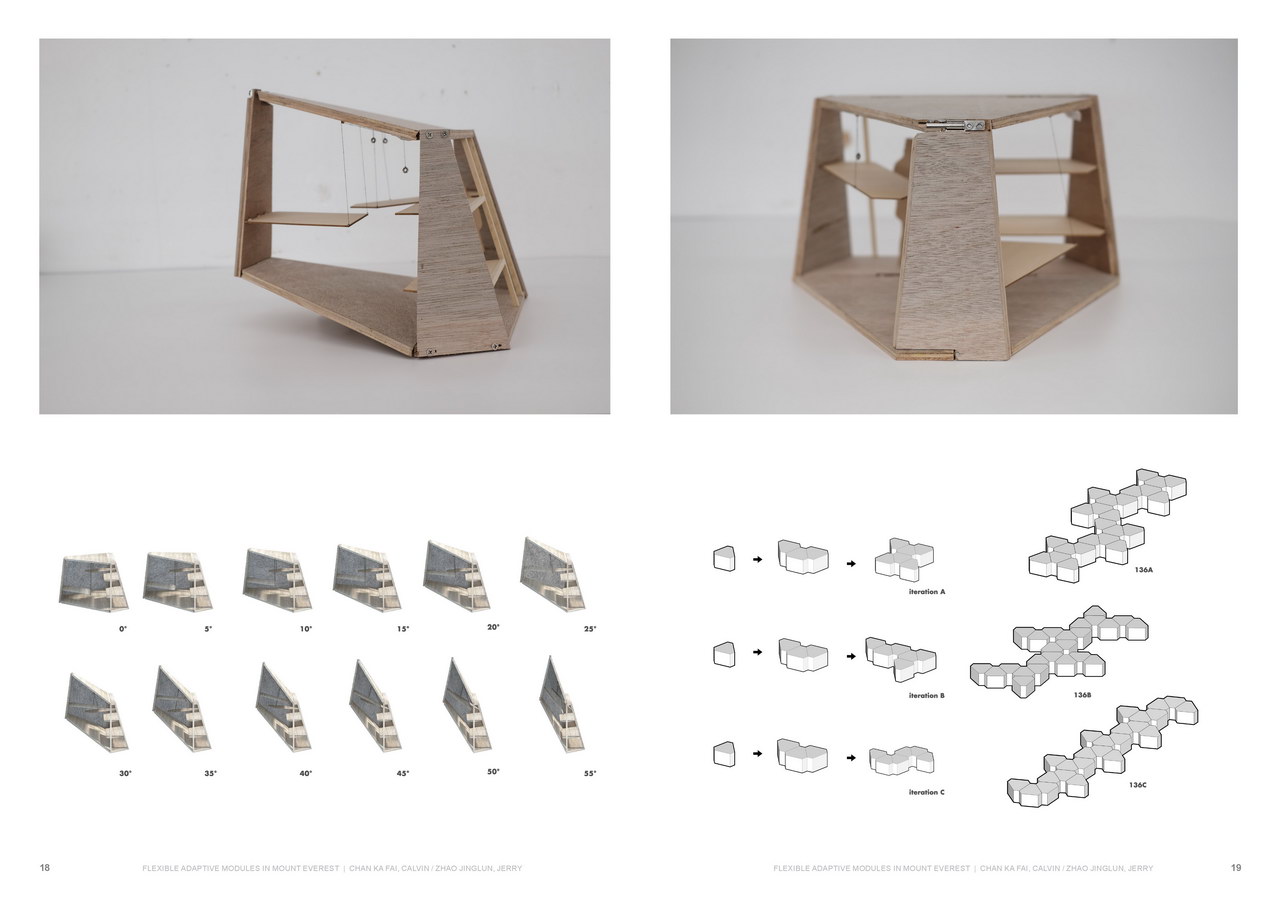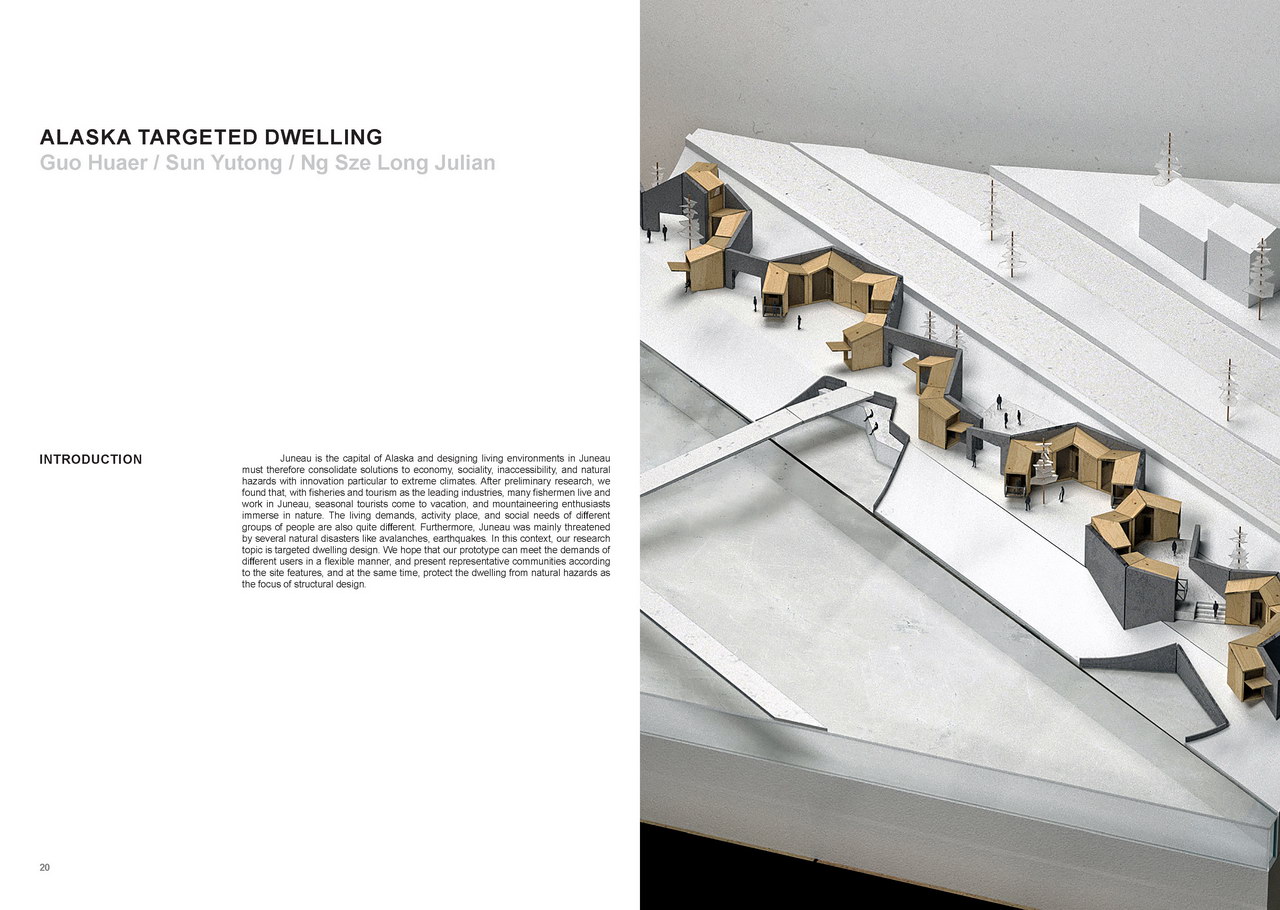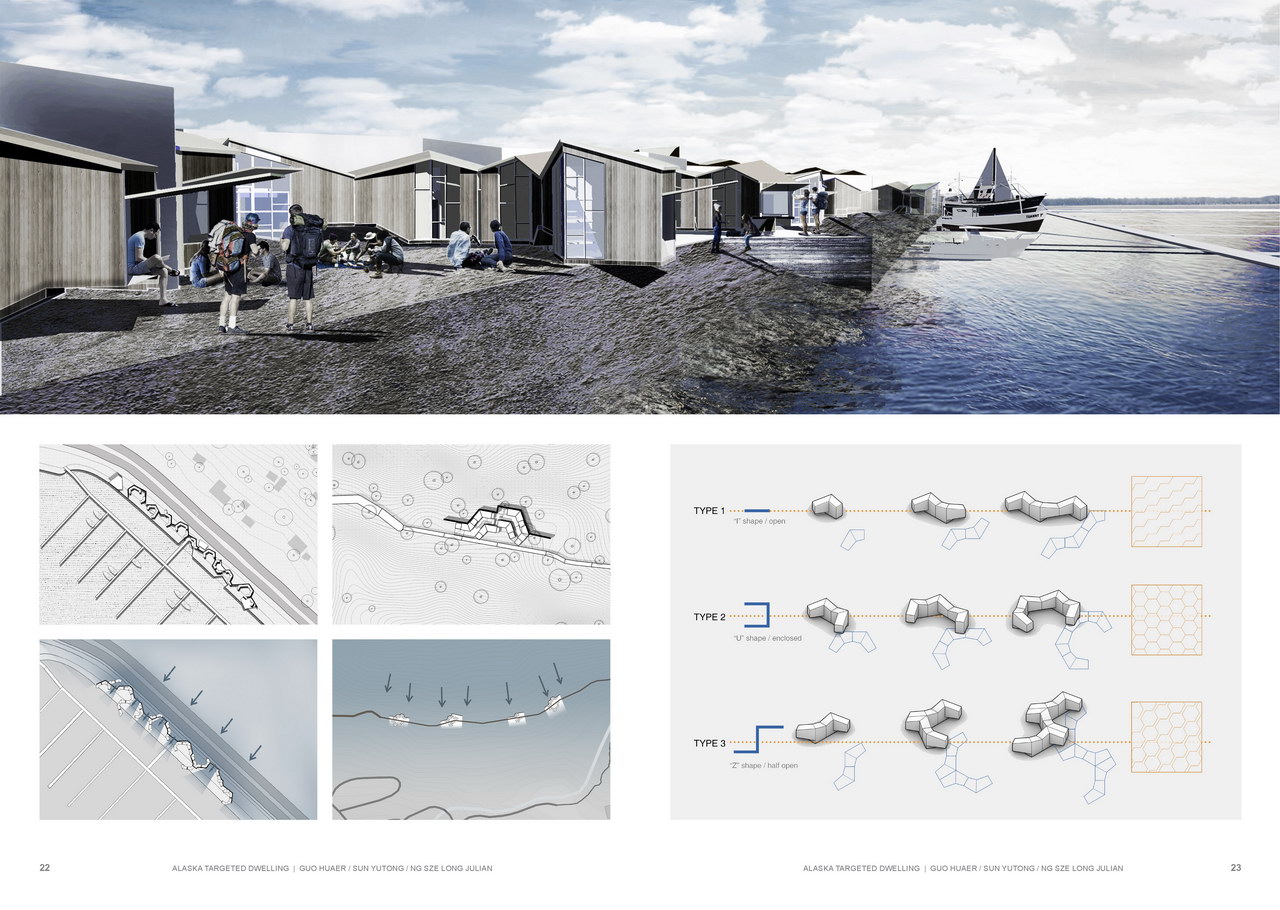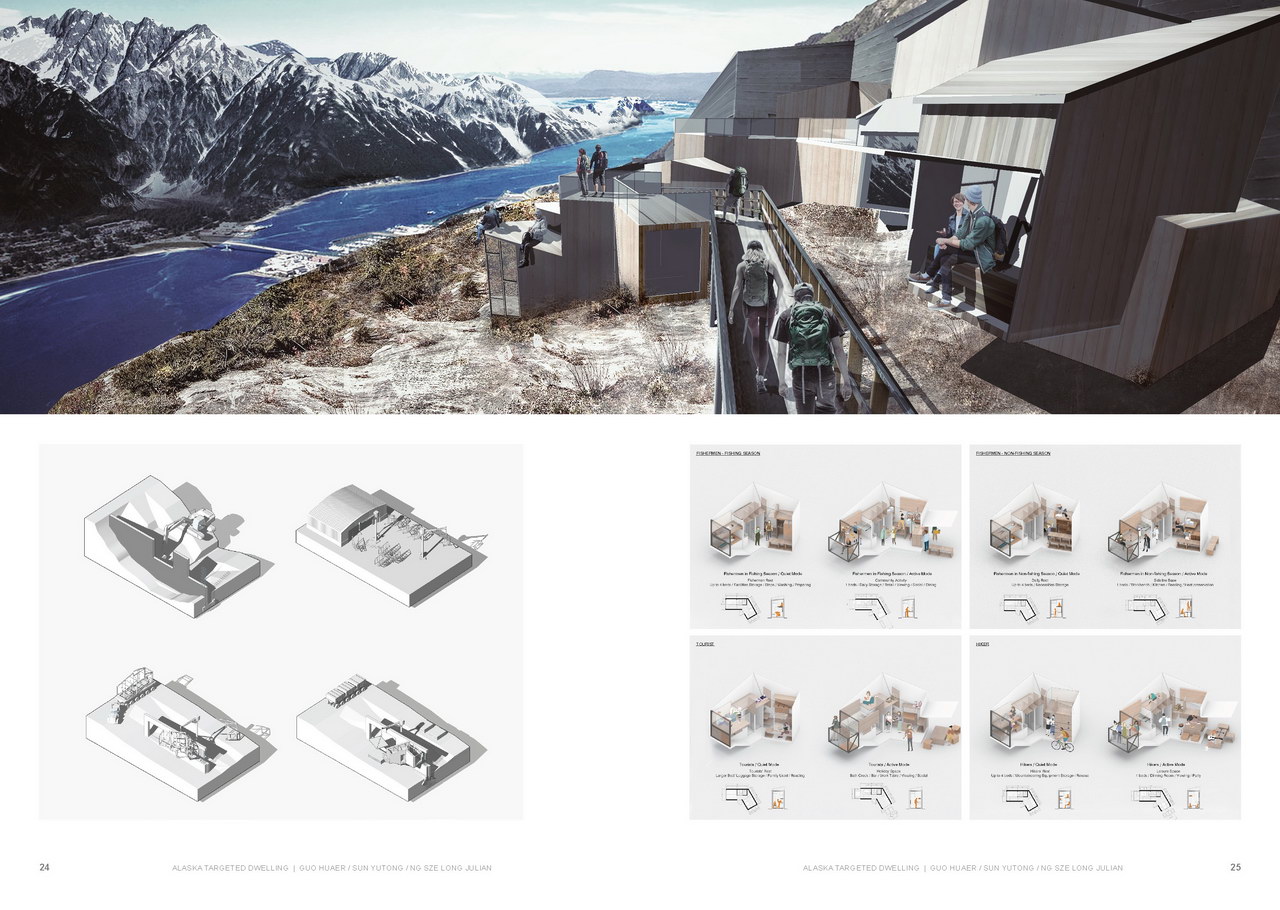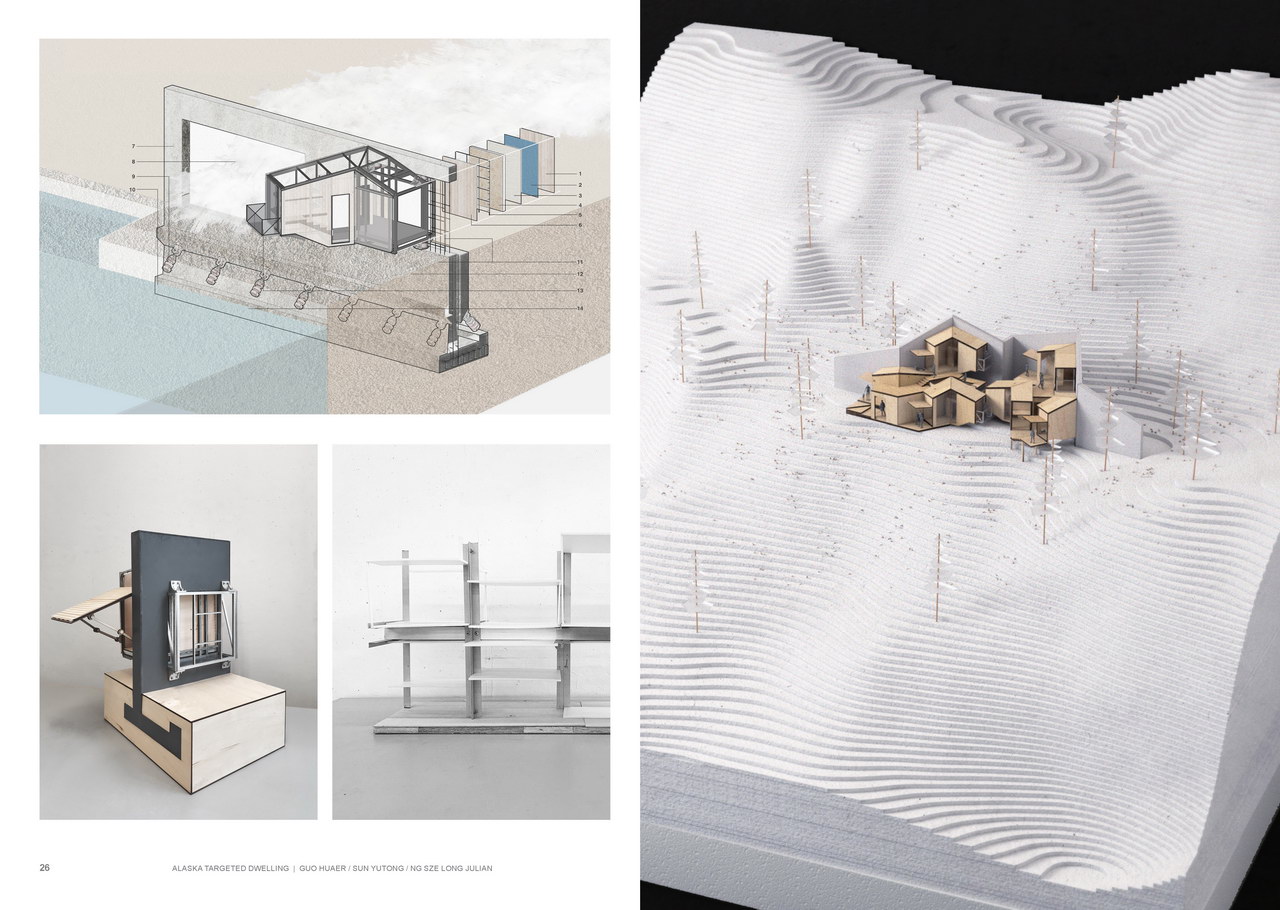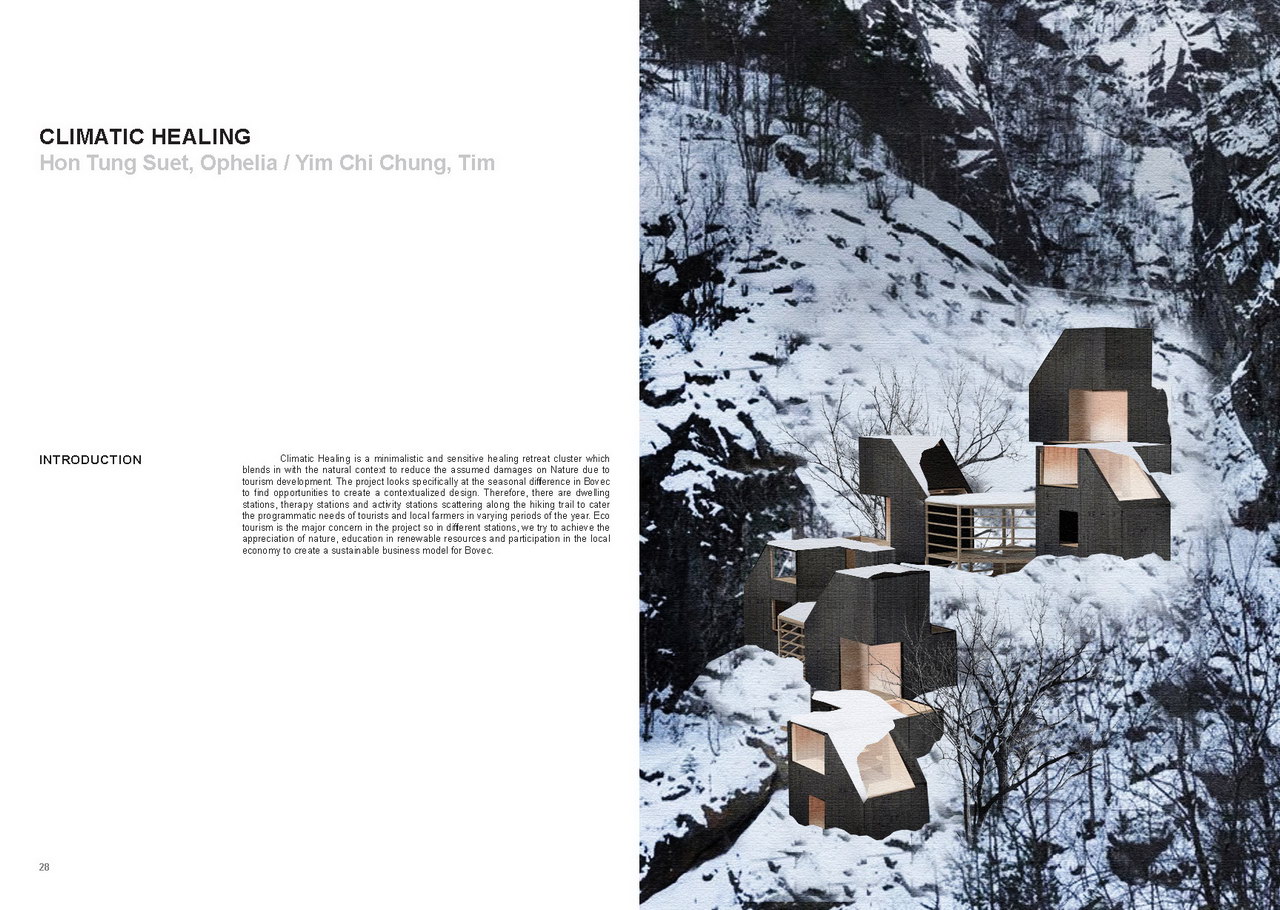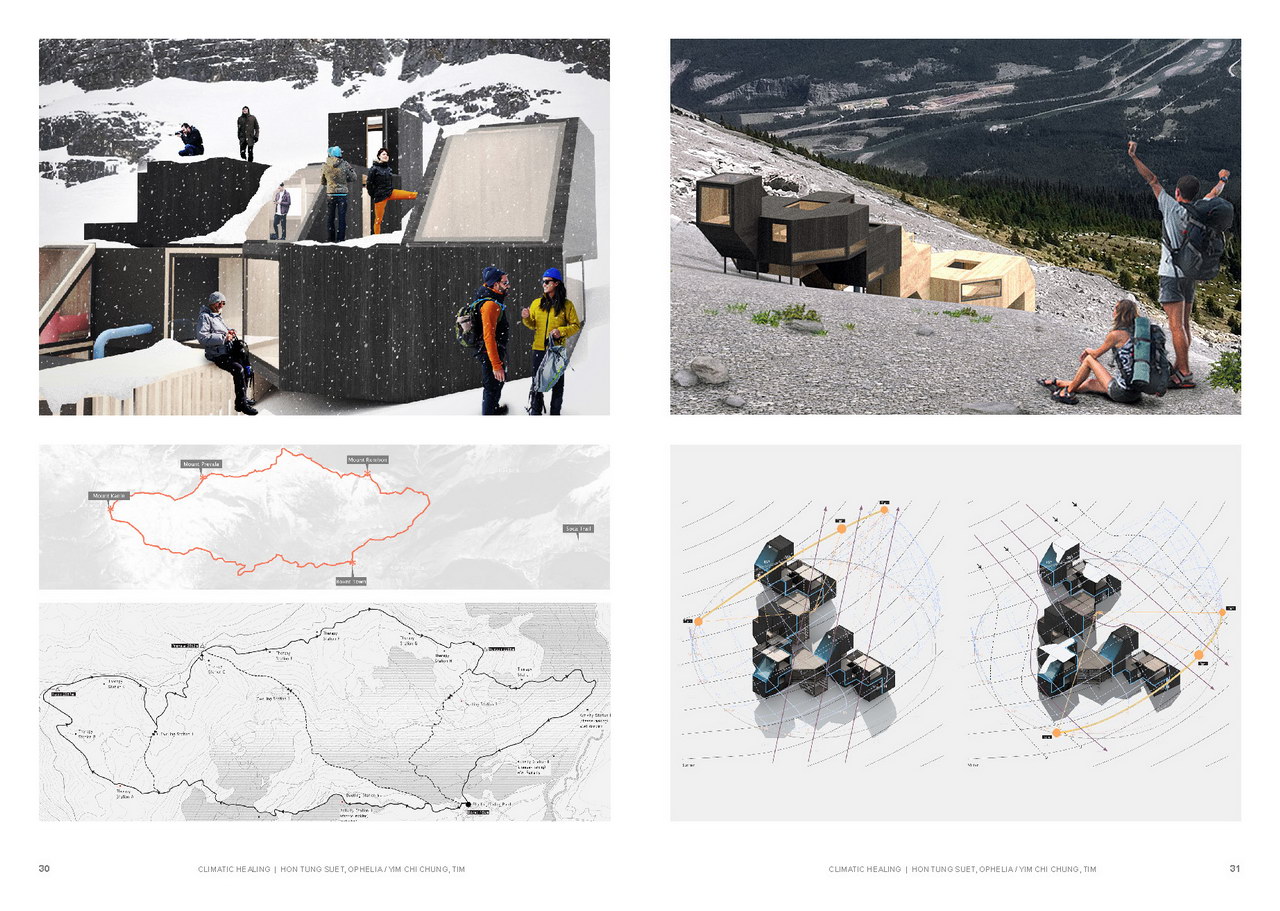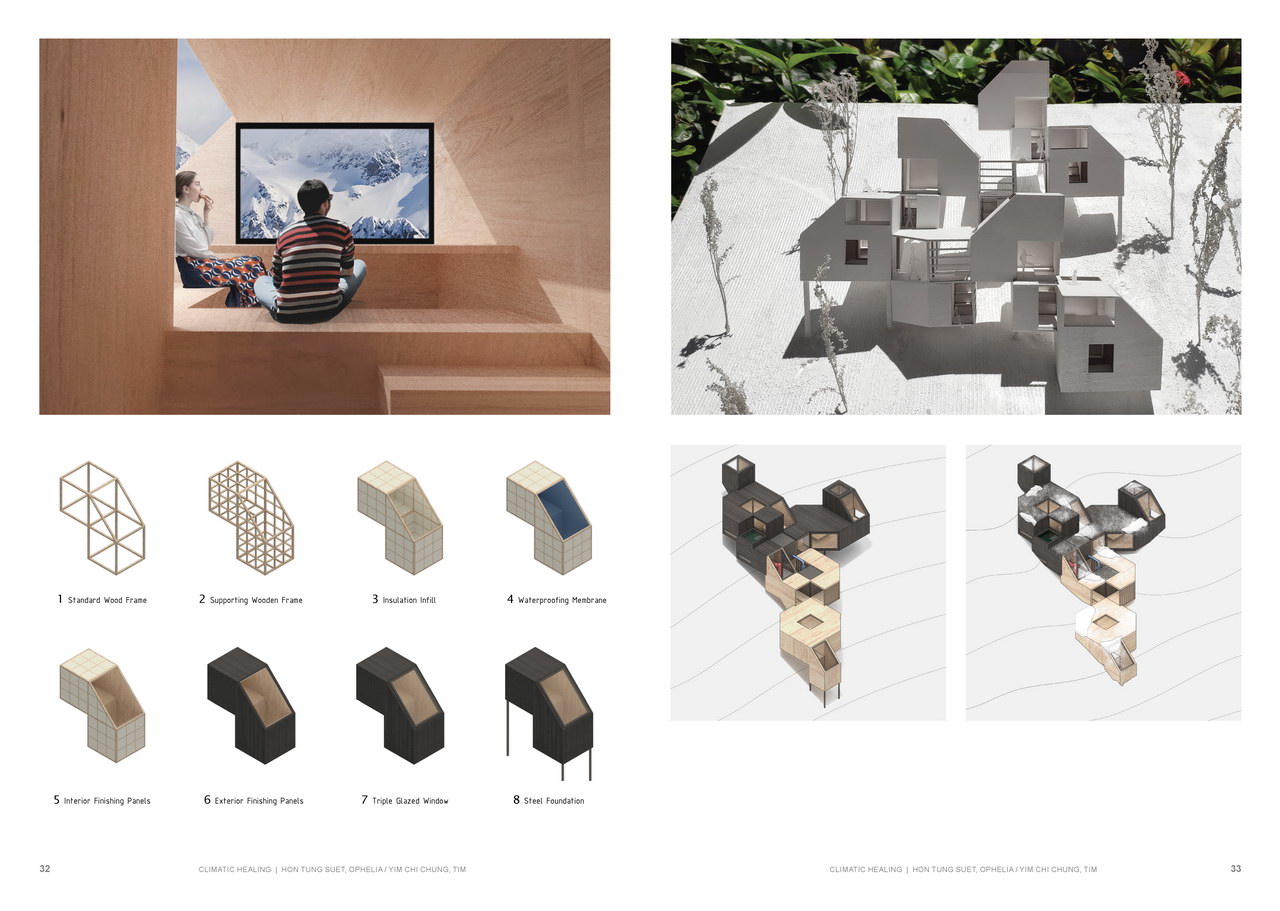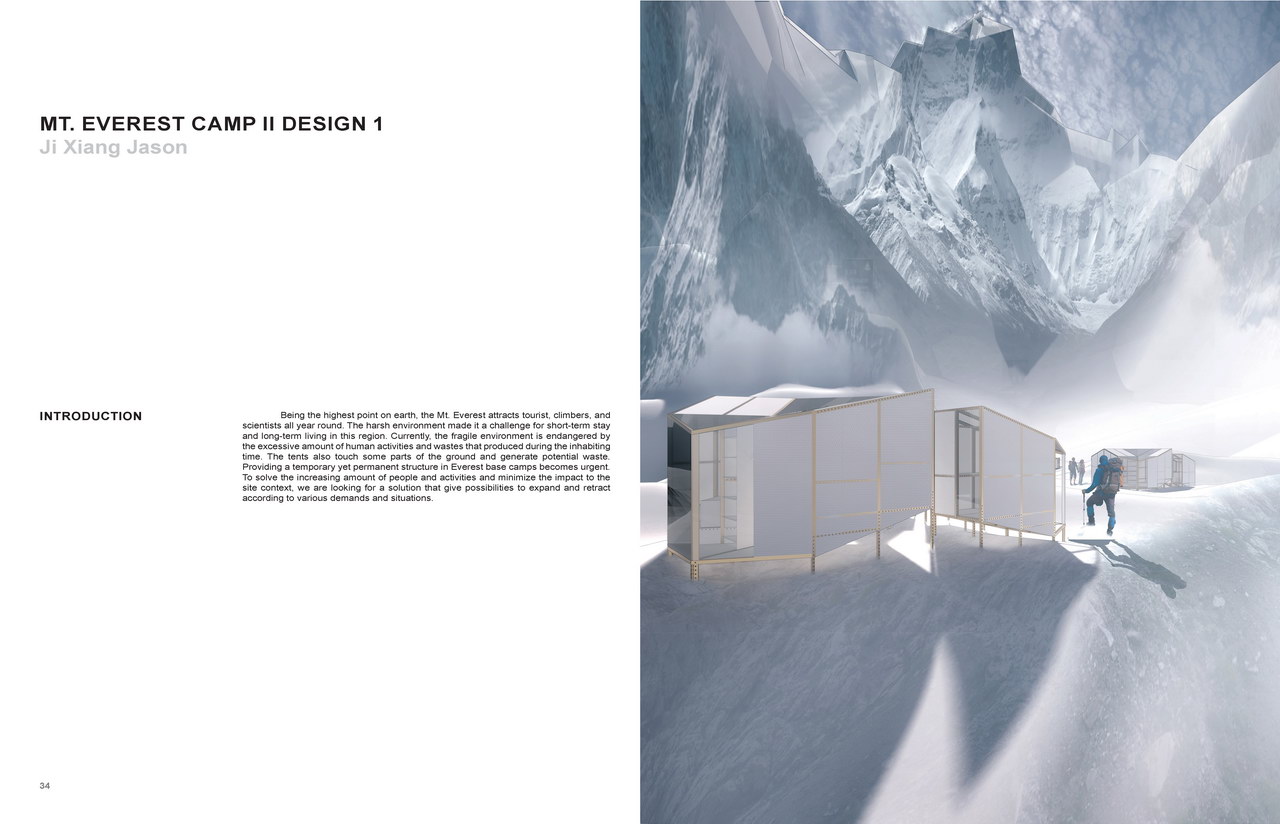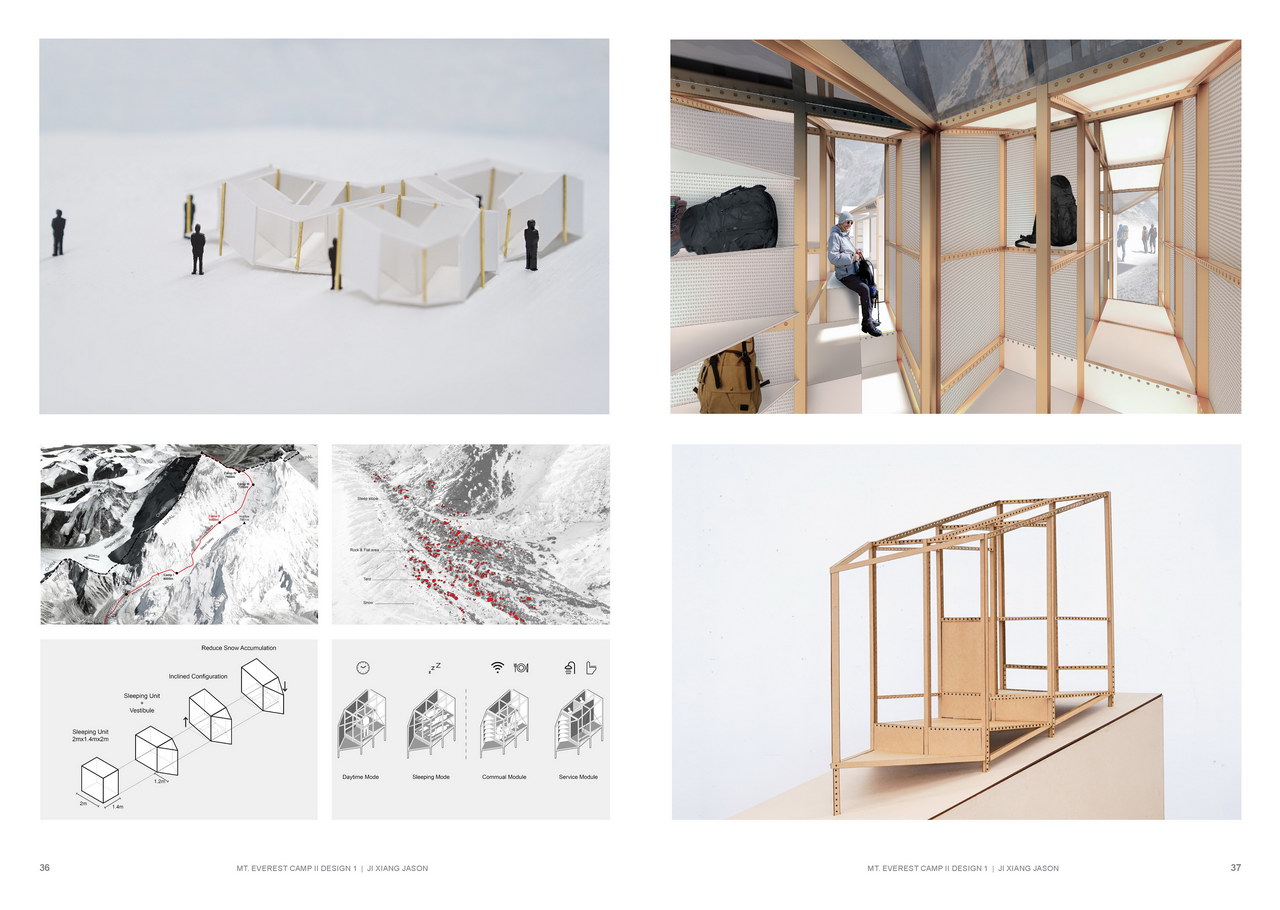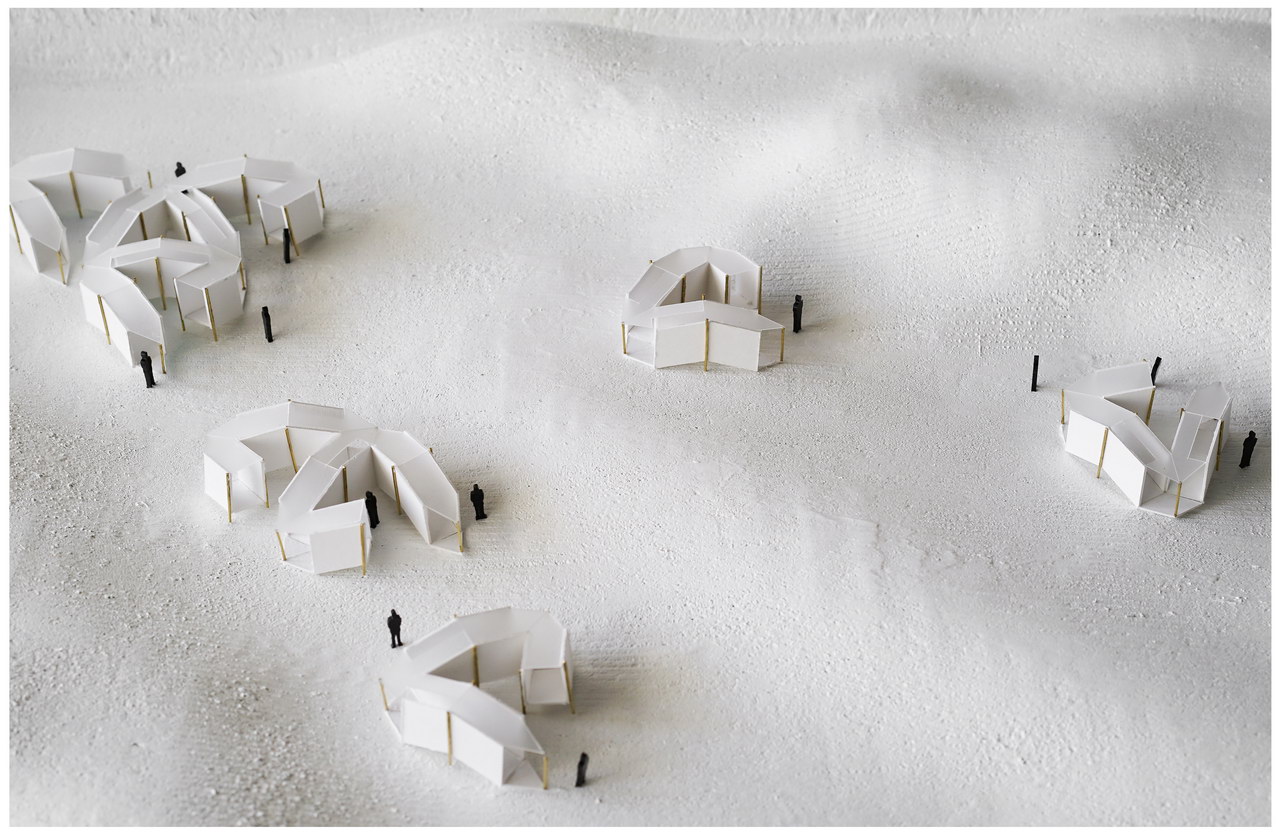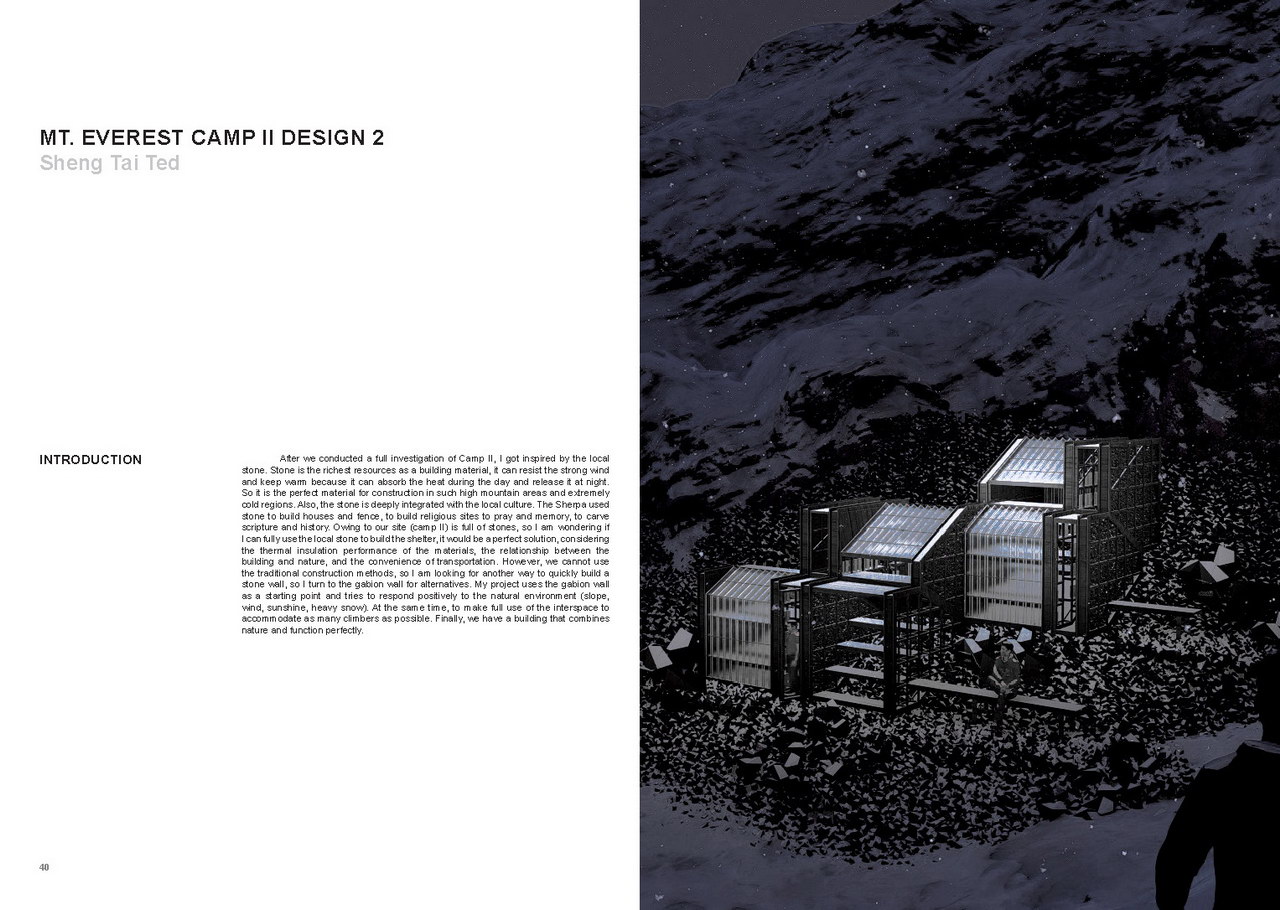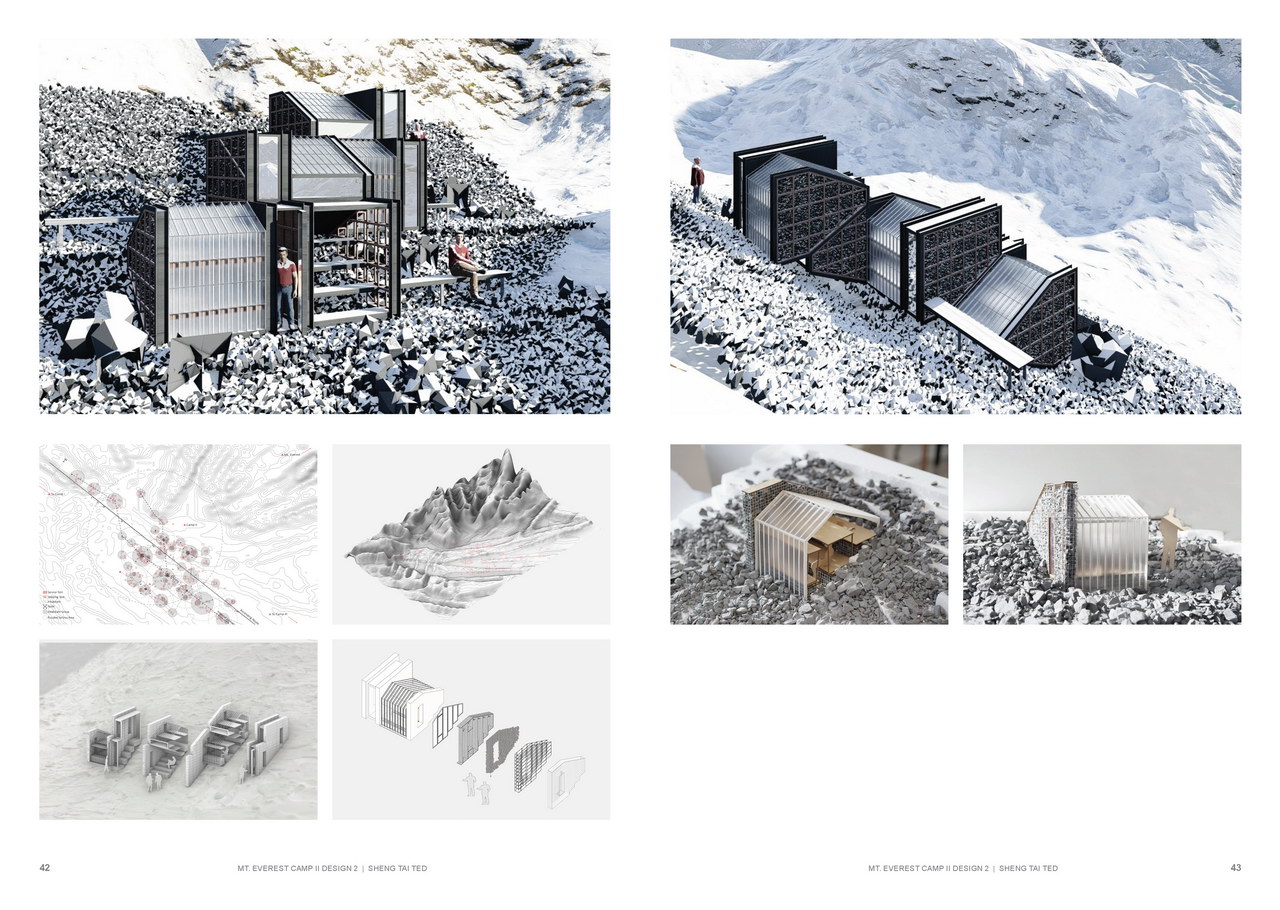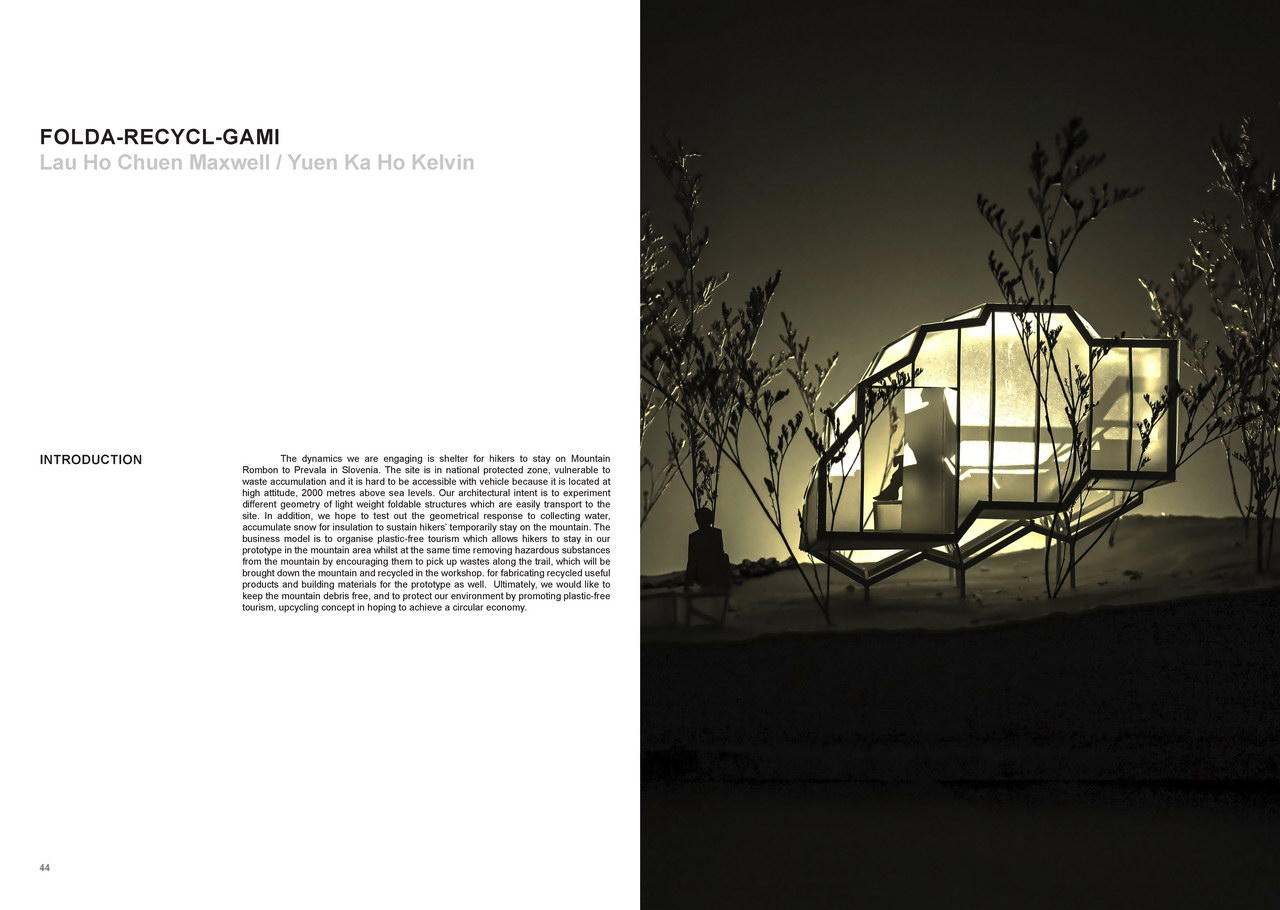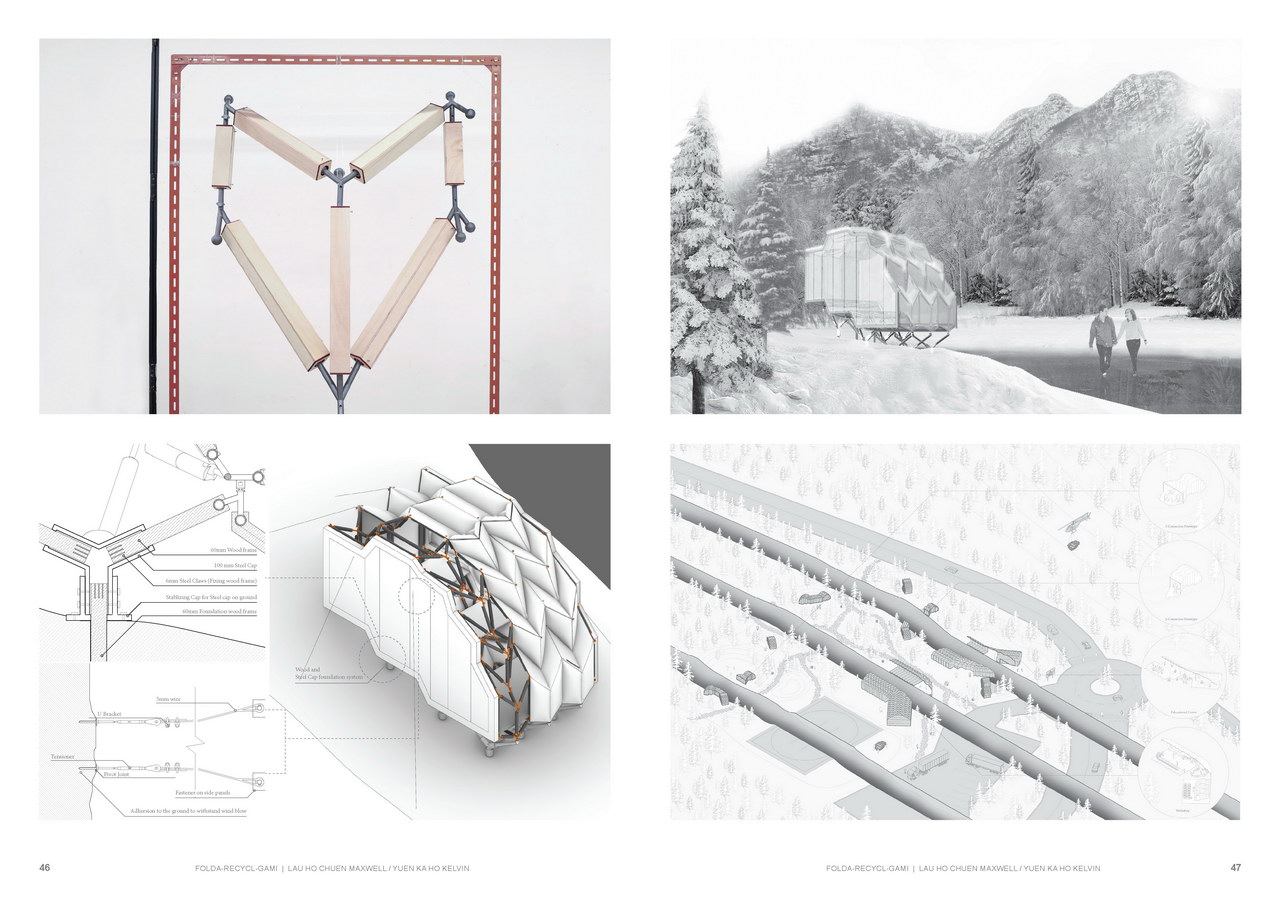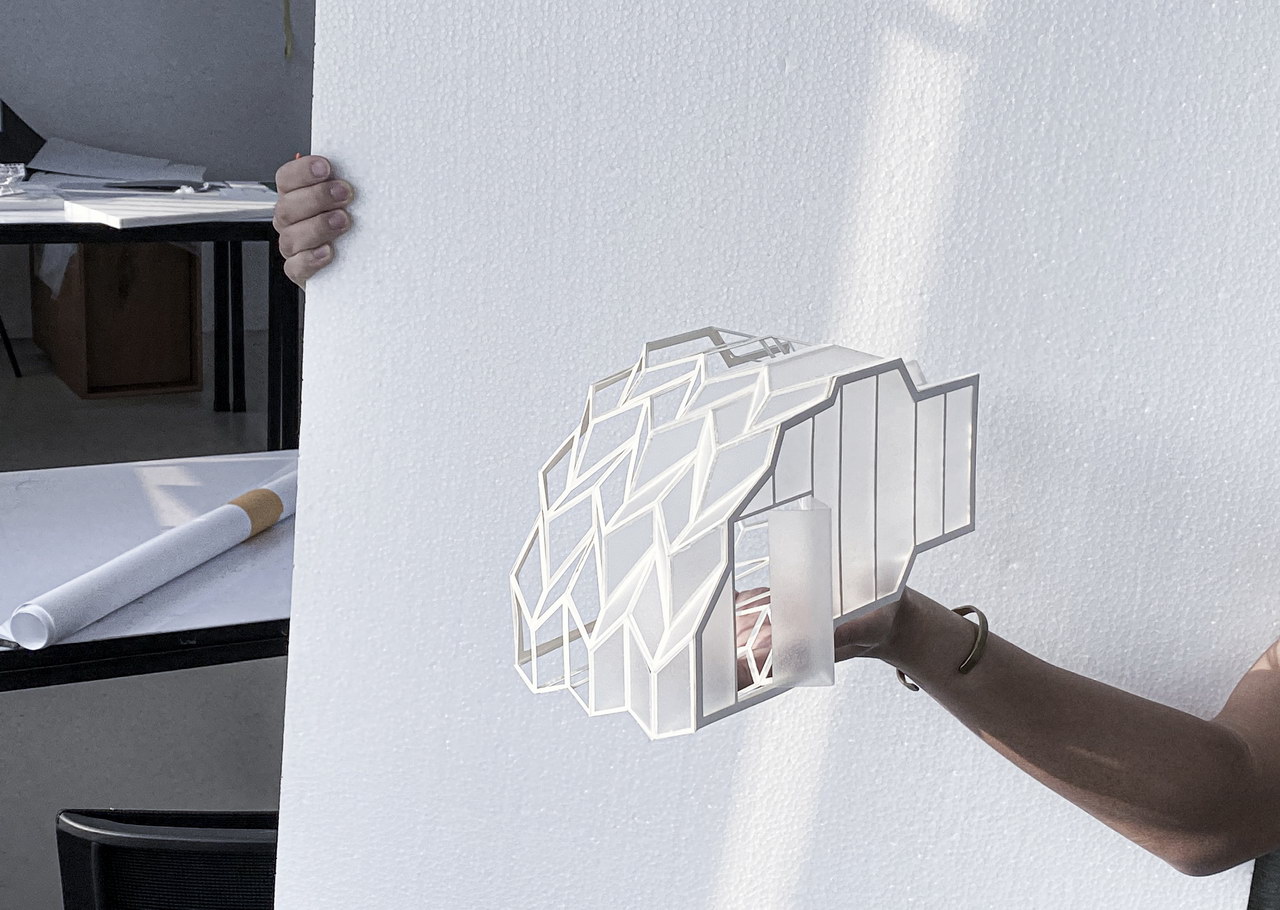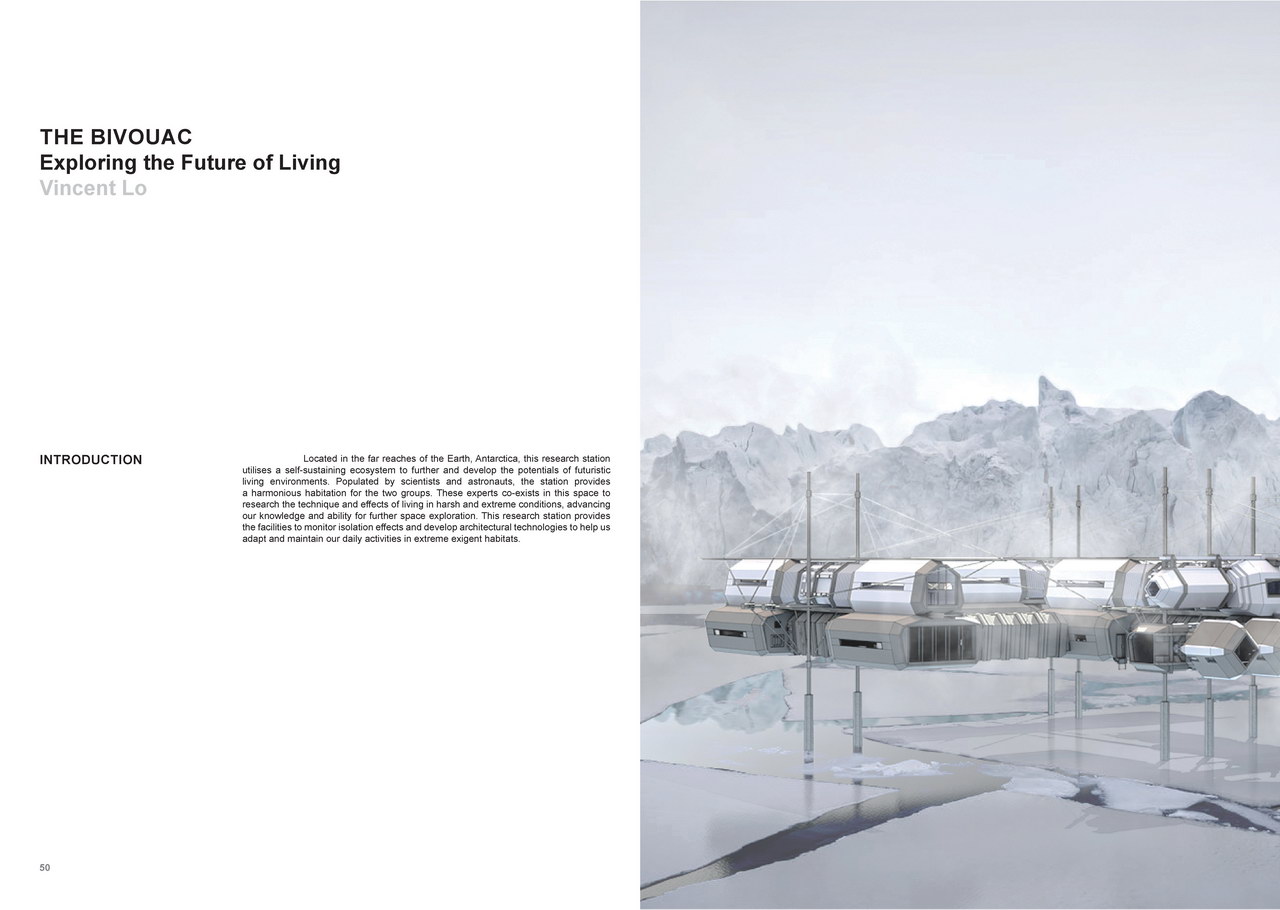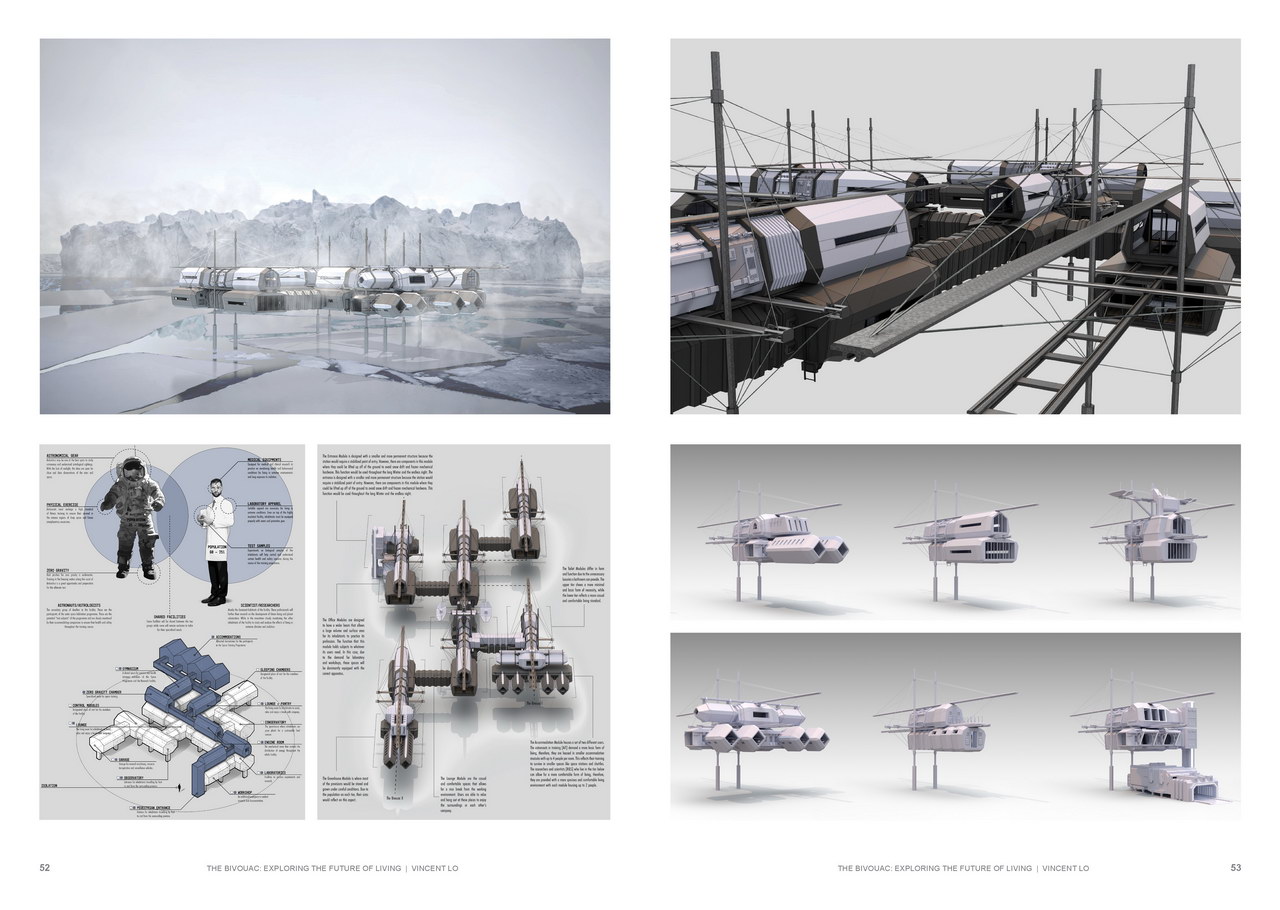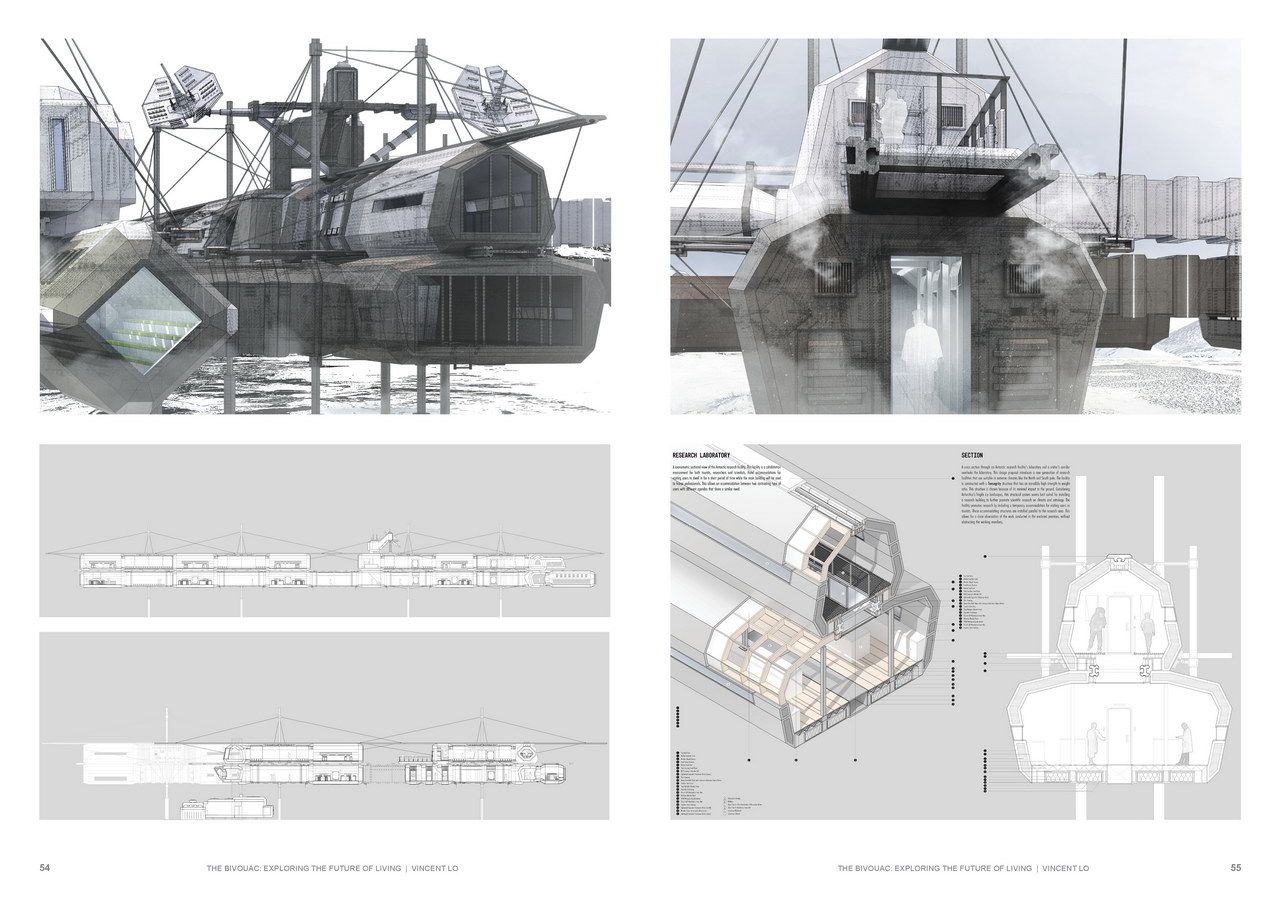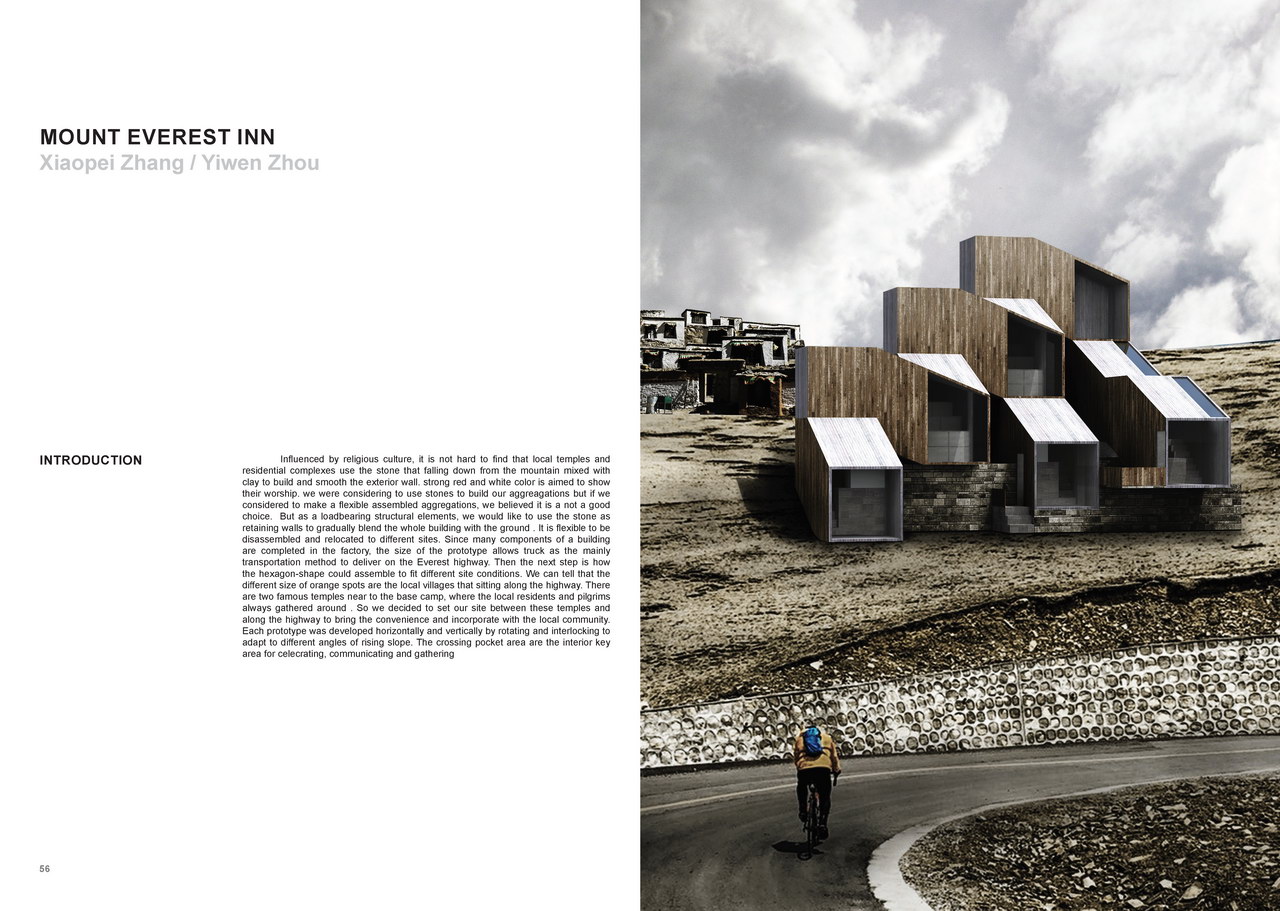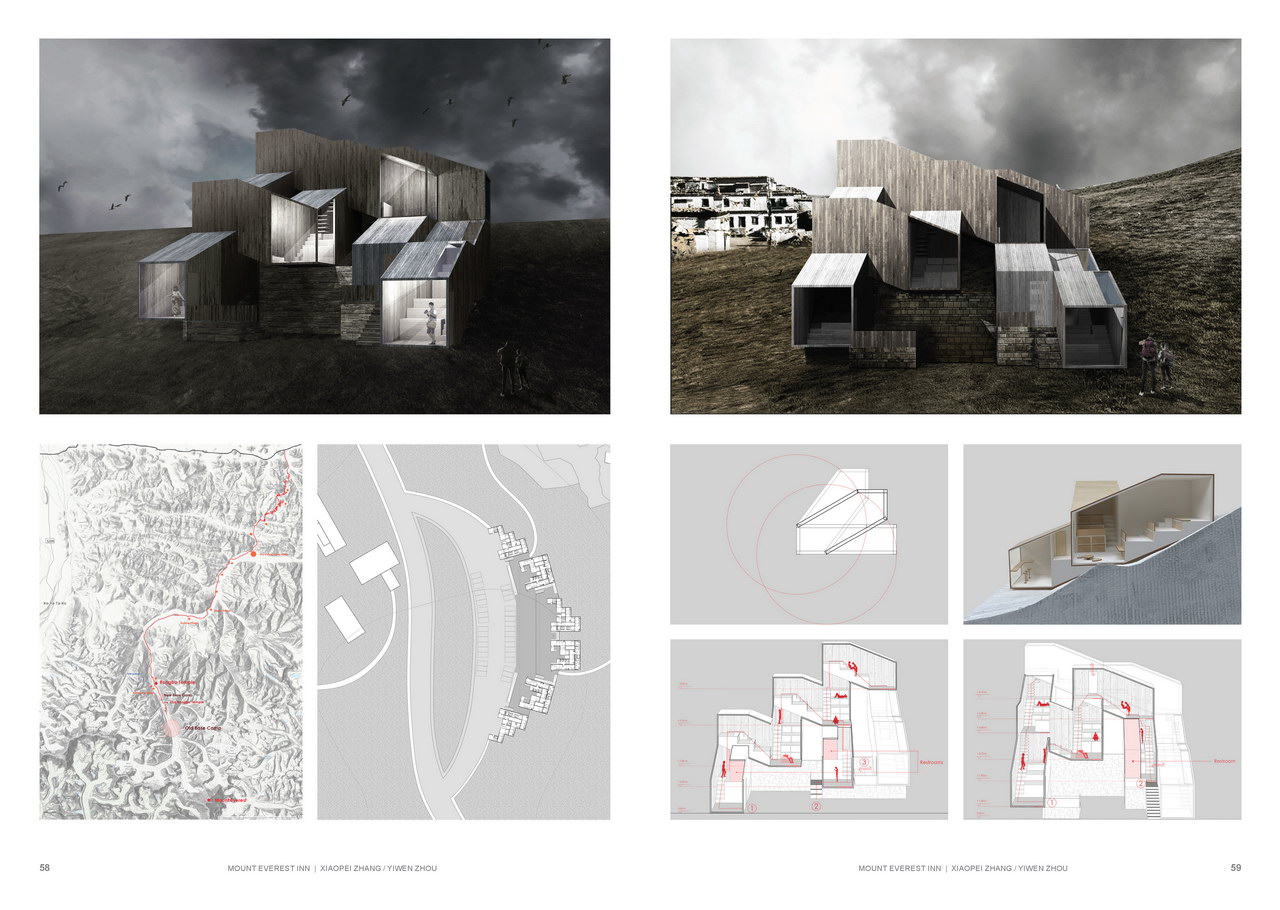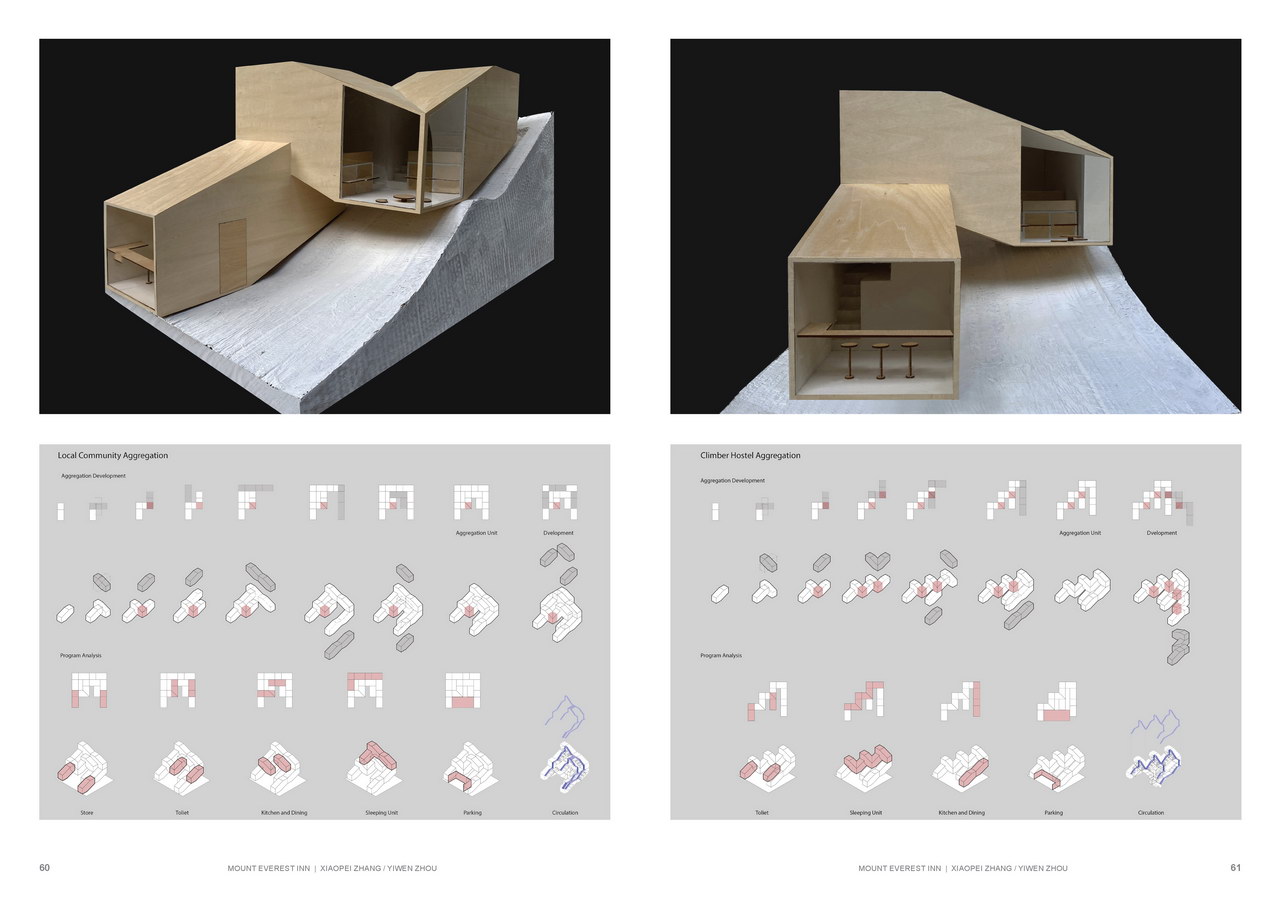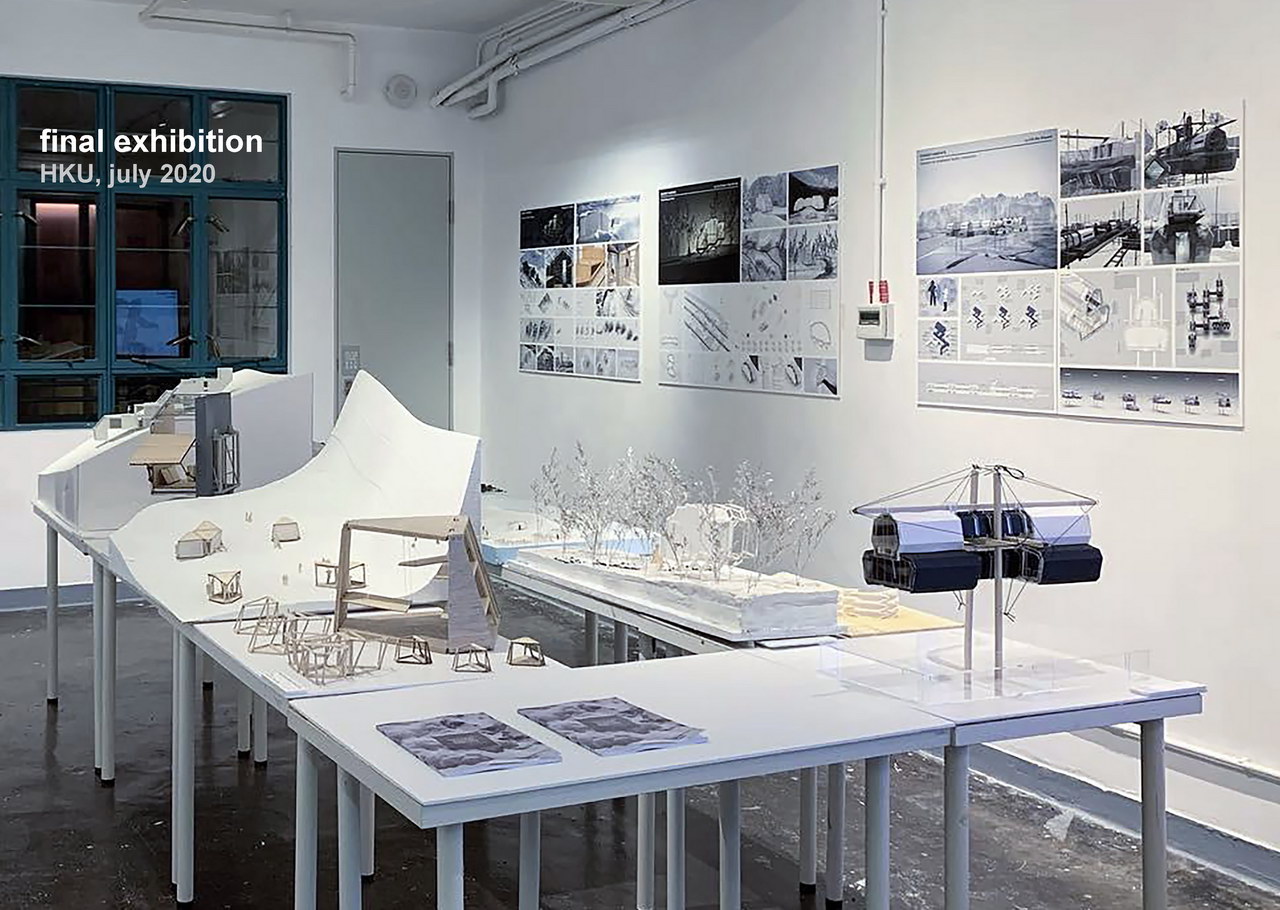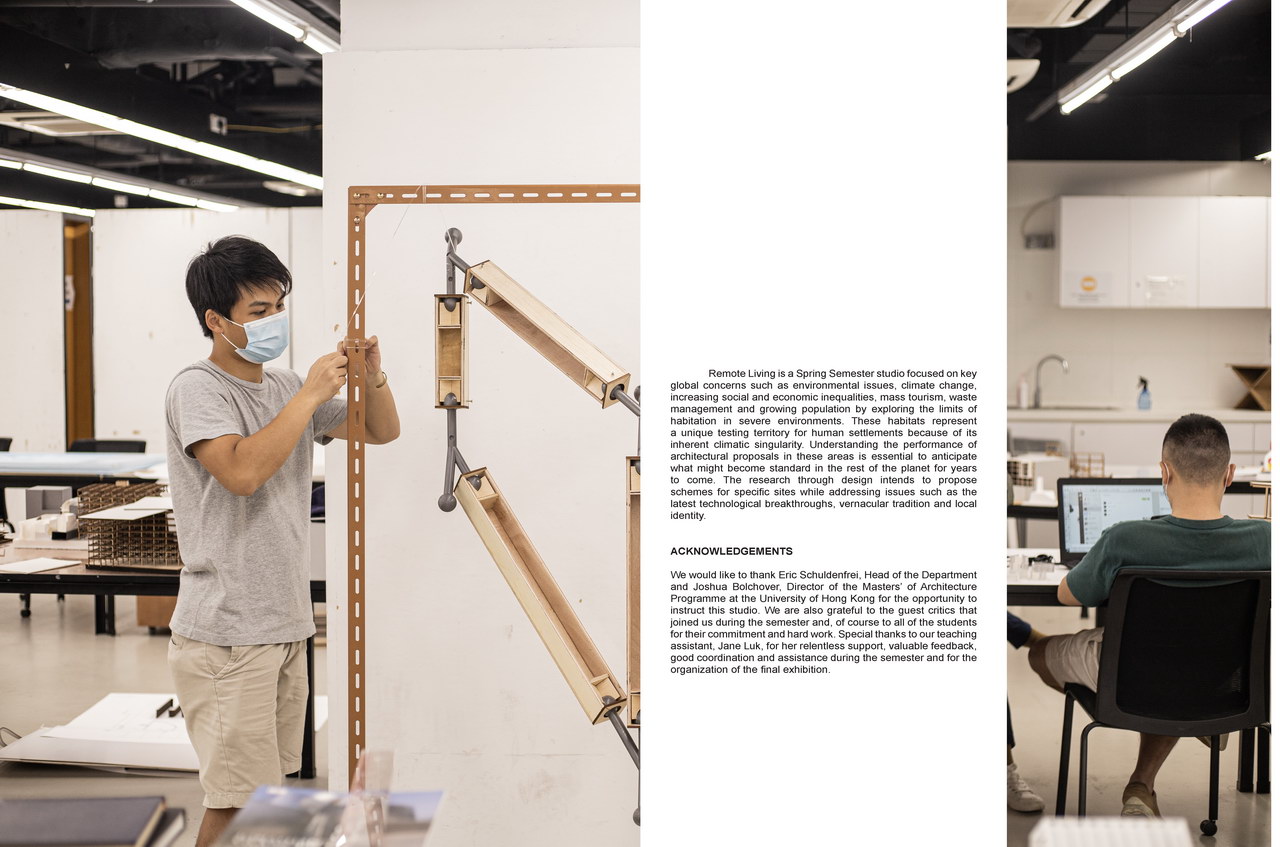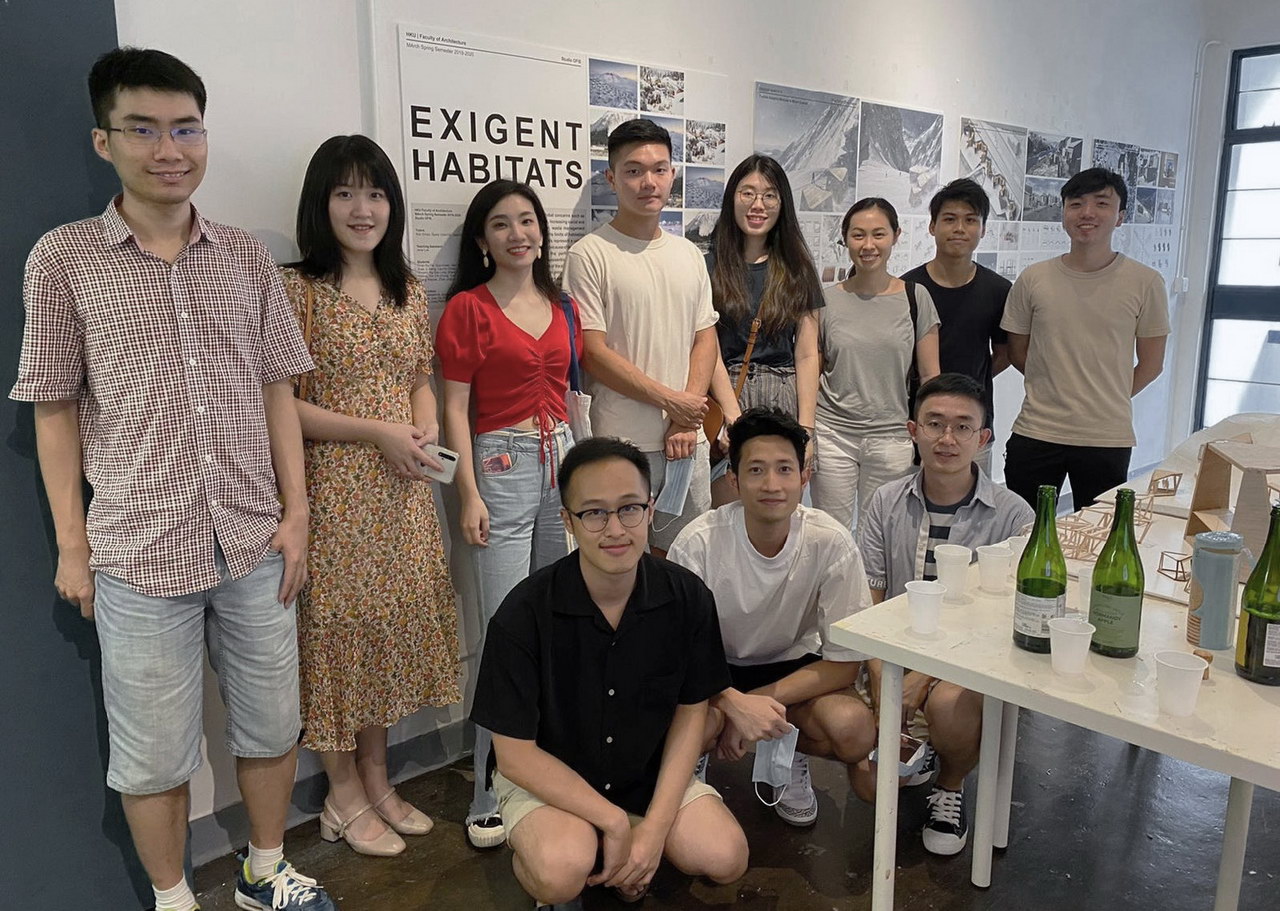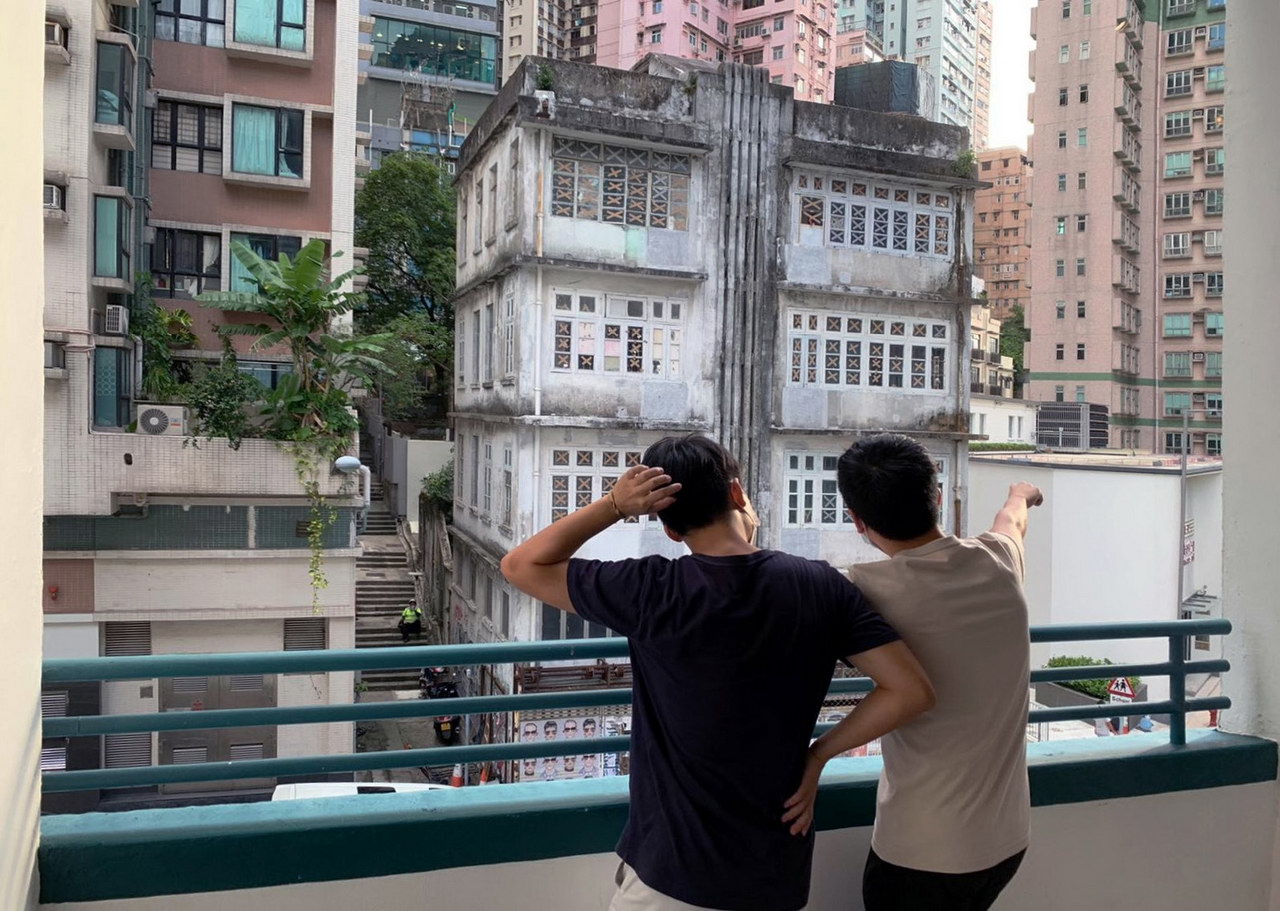REMOTE LIVING
Remote Living is a Spring Semester studio focused on key global concerns such as environmental issues, climate change, increasing social and economic inequalities, mass tourism, waste management and growing population by exploring the limits of habitation in severe environments. These habitats represent a unique testing territory for human settlements because of its inherent climatic singularity. Understanding the performance of architectural proposals in these areas is essential to anticipate what might become standard in the rest of the planet for years to come. The research through design intends to propose schemes for specific sites while addressing issues such as the latest technological breakthroughs, vernacular tradition and local identity. The aim was to produce a coherent concept to cope with the exposed facts for each scenario. The result of the studio is a specific buildable proposal, accurately developed and defined by 3D models, plans, sections, construction details, physical models and possibly, 1:1 prototyping for some parts. Harsh environmental conditions require incisive designs that respond to irregular loading from strong winds, heavy snowfalls, avalanche risk zones and extreme cold. These phenomena are often instantaneous, sudden and unpredictable. Risk of severe weather increases the vulnerability of human habitation to natural surroundings. Housing, in particular, must achieve self-sufficiency in such environments in order to decrease dependency upon external infrastructural networks during periods of harsh weather. It must avoid the problems caused by complex material provision and inaccessible, remote terrain. Designing living environments must therefore consolidate solutions to scarcity, inaccessibility, self-sufficiency and specificity of innovation. In addition to the quite experimental curriculum of this studio, the conditions imposed by the COVID-19 pandemic have transformed the way of thinking and new situation called for adaptable new solutions. The experience of remote learning took away our chances to meet physically, gather and discuss about the production of architecture but in no way it has reduced the quality and dedication put on the production of the projects exposed in this publication. Our students have been committed to the studio since the beginning, have worked hard and, most of the time, aimed well. Let their work be the best testimony of such a peculiar Semester to remember.
Read moreTutors Rok Oman, OFIS arhitekti Špela Videčnik, OFIS arhitekti Teaching Assistant Jane Luk Students Chan Ka Fai Calvin, Guo Huaer, Hon Tung Suet Ophelia, Ji Xiang Jason, Lau Ho Chuen Maxwell, Vincent Lo, Ng Sze Long Julian, Sheng Tai Ted, Sun Yutong, Yim Chi Chung Tim, Yuen Ka Ho Kelvin, Xiaopei Zhang, Zhao Jinglun Jerry , Yiwen Zhou Guest critics Olga Aleksakova, Joshua Bolchover, Julia Burdova, Juan Du, Holger Kehne, Burak Pekoglu, Gilles Retsin, Eike Schling ACKNOWLEDGEMENTS We would like to thank Eric Schuldenfrei, Head of the Department and Joshua Bolchover, Director of the Masters’ of Architecture Programme at the University of Hong Kong for the opportunity to instruct this studio. We are also grateful to the guest critics that joined us during the semester and, of course to all of the students for their commitment and hard work. Special thanks to our teaching assistant, Jane Luk, for her relentless support, valuable feedback, good coordination and assistance during the semester and for the organization of the final exhibition.
